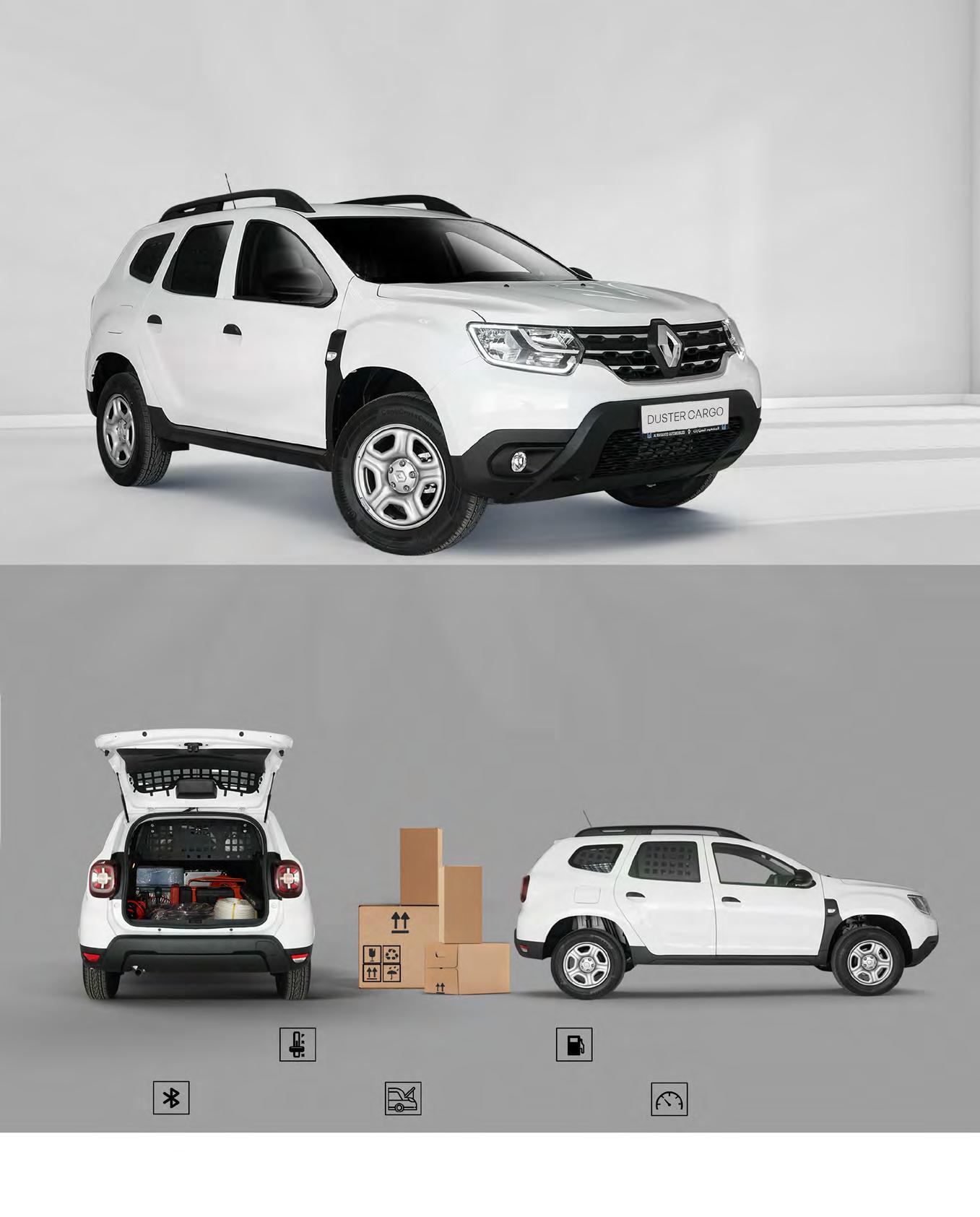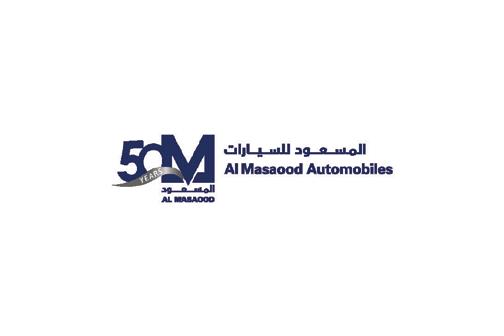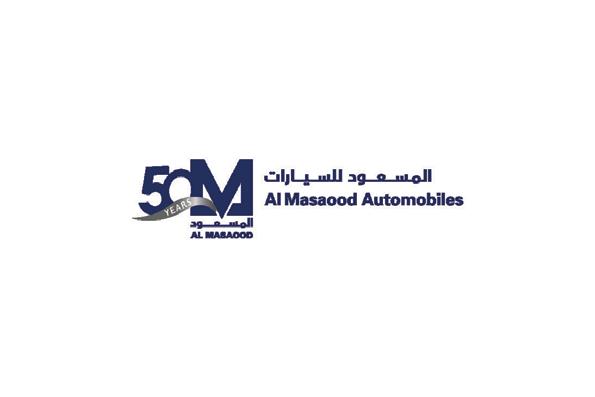Is Your Warehouse a Candidate for Automation?
Importance of smart real estate investments
Implementing the

Is Your Warehouse a Candidate for Automation?
Importance of smart real estate investments
Implementing the
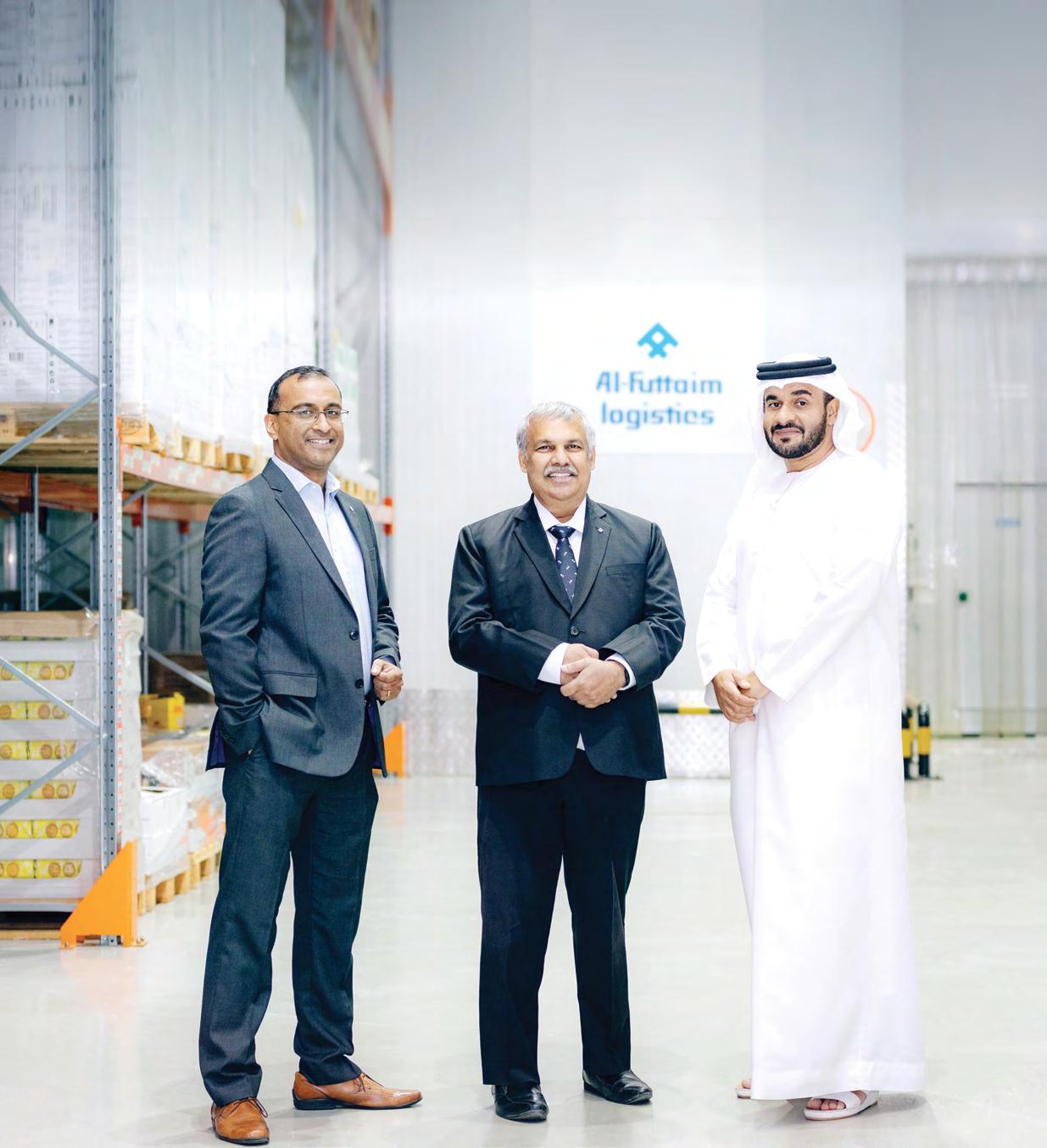
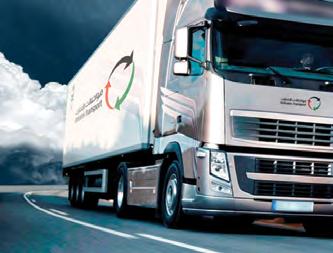






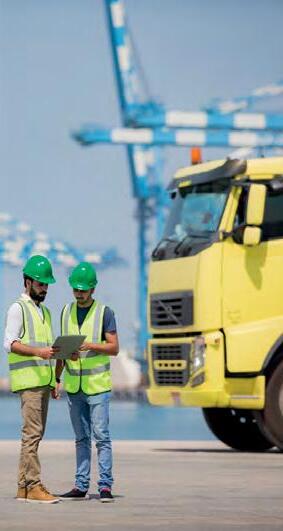













COLD CHAIN FULFILMENT
Kasun Illankoon explores in detail Al-Futtaim Logistics’ award winning cold chain warehouse facilitiesthat caters to the F&B industry
18 OP-ED
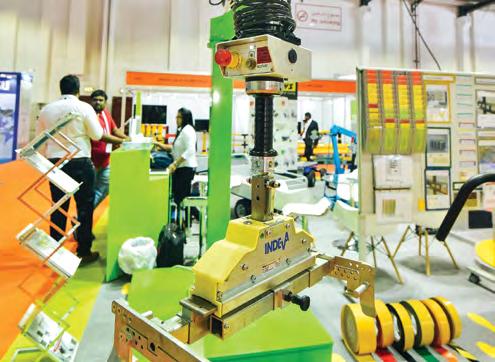

EXPANDING LOGIPOINT’S FOOTPRINT
ACROSS SAUDI ARABIA
Waleed Alkhayyat, The Head of Marketing and Corporate Communications at LogiPoint discusses his role and how his department is positioning the company as a market leader in the Middle East
28 DIGITAL
DP WORLD LAUNCHES CARGOES LOGISTICS
CARGOES Logistics by DP World is a new digital logistics solution, providing instant online cargo booking, highly efficient movement, and advanced tracking, from origin to destination
30 AUTOMATION INDUSTRY GROWTH THROUGH AUTOMATION
Automation market set to double in size by 2025 as digitalisation dictates industry growth
32 EXPRESS LOGISTICS
ARAMEX REDESIGNS OPERATING MODEL TO CAPTURE GROWTH OPPORTUNITIES
Aramex is adopting a new operating model with an objective of enhancing customer service levels and operating efficiencies while capturing greater global market share within both the B2C and B2B customer segments
34 TALKING POINT
THE FUTURE OF LOGISTICS
Amadou Diallo, CEO of DHL Global Forwarding Middle East and Africa, tells us about the five lessons learnt from a global pandemic
38 SUPPLY CHAIN CREATING VALUE
Bridge Medical GPO Trading LLC has signed a Memorandum of Understanding with JAGGAER which will see the start-up healthcare GPO leveraging JAGGAER’s Tejari spend management procurement platform

The ongoing COVID-19 pandemic disrupted supply chains, worldwide, and exposed the weak links in the logistics sector. Many countries were trying to come to terms with the supply chain challenges posed by the pandemic. This has resulted in the logistics industry being more innovative in how they delivered the products to the end user by using futurist technologies. The UAE however did not experience large-scale shortages of essential goods due to Covid-induced supply chain disruptions. This was a mixture of good foresight, swift action and the significant investments in multimodal facilities and infrastructure made over decades. As UAE’s logistics sector braces up to an exciting journey, the one positive fall out has been that it exacerbated the problems, exposed the deficiencies in the existing supply chain system and prompted the stakeholders to come up with creative solutions.
Kasun Illankoon Managing Editor kasun@bncpublishing.net



CEO Wissam Younane wissam@bncpublishing.net
DIRECTOR Rabih Najm rabih@bncpublishing.net
GROUP PUBLISHING DIRECTOR Joaquim D'Costa jo@bncpublishing.net +971 50 440 2706
BUSINESS DEVELOPMENT DIRECTOR Rabih Naderi rabih.naderi@bncpublishing.net
+966 50 328 9818
MANAGING EDITOR Kasun Illankoon kasun@bncpublishing.net
EDITOR Jochebed Menon
EDITORIAL DESIGN Christian Harb
MARKETING EXECUTIVE Aaron Joshua Sinanbam aj@bncpublishing.net
PHOTOGRAPHER Alexander Bungas
SUBSCRIBE
subscriptions@bncpublishing.net
For all commercial enquiries, contact sales@bncpublishing.net
T +971 50 440 2706 PO Box 502511 Dubai, United Arab Emirates P
All rights reserved © 2021. Opinions expressed are solely those of the contributors.
Logistics News ME and all subsidiary publications in the MENA region are officially licensed exclusively to BNC Publishing in the MENA region by Logistics News ME. No part of this magazine may be reproduced or transmitted in any form or by any means without written permission of the publisher.
Images used in Logistics News ME are credited when necessary. Attributed use of copyrighted images with permission. All images not credited courtesy Shutterstock.
Printed by UPP
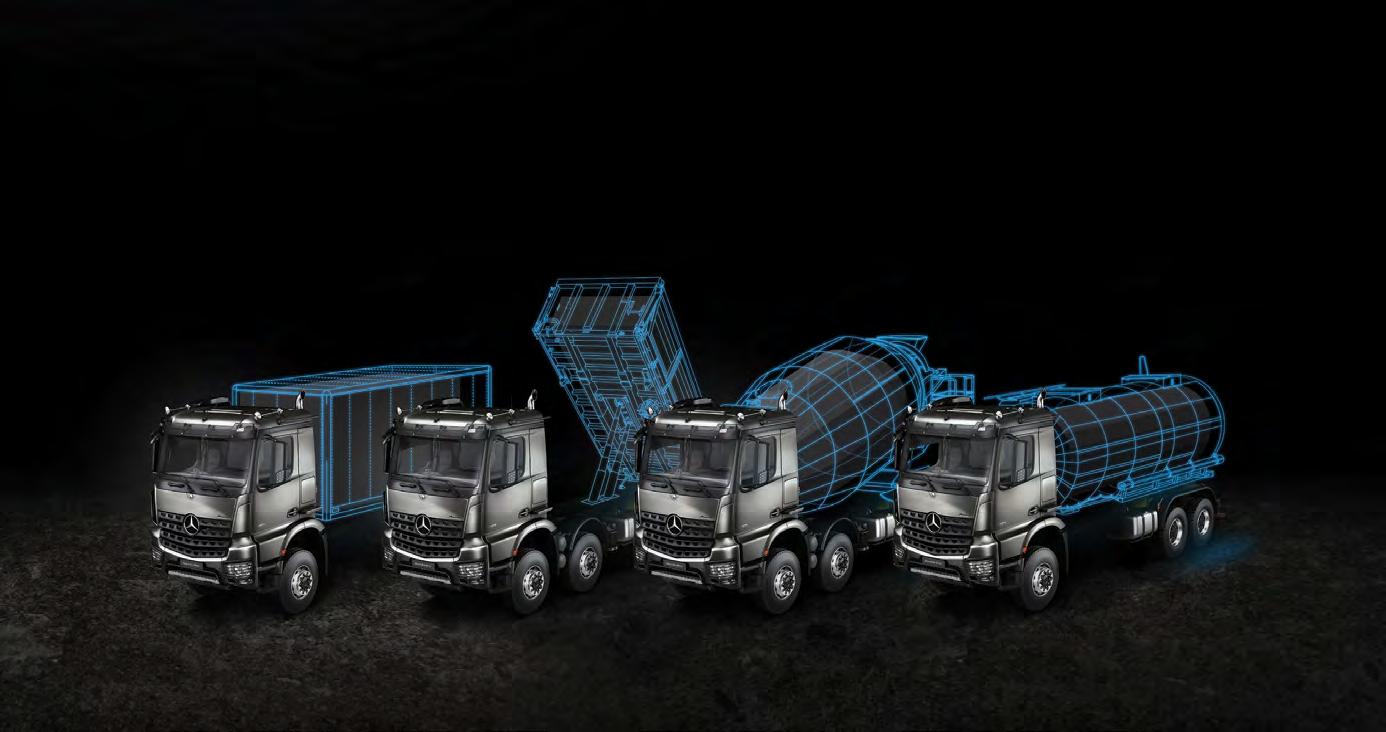
Regardless of whether it is a rigid chassis, concrete mixer or heavy-duty tipper: The Mercedes-Benz Arocs provides an especially robust, resilient vehicle that is optimally prepared for use for any construction haulage challenge. Configure it now to suit your requirements and those of your project.




















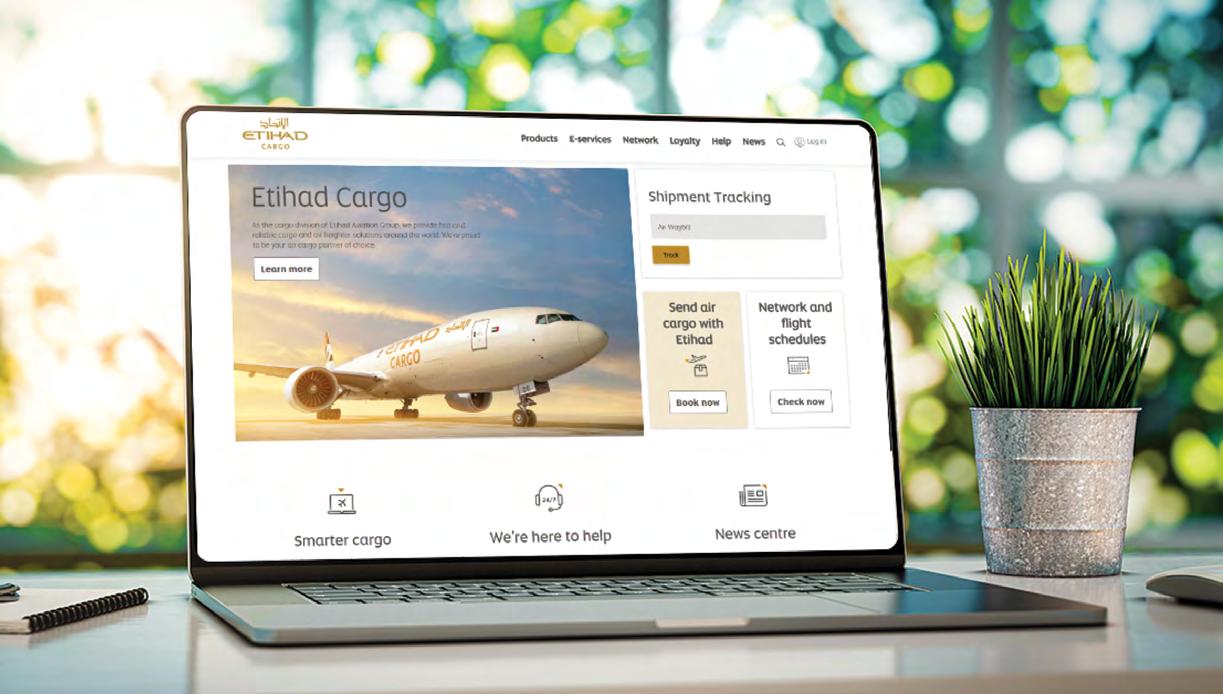
Etihad Cargo, the cargo and logistics arm of the Etihad Aviation Group, has revamped the etihadcargo.com portal to provide customers with a heightened and intuitive online experience. The new-look website includes the introduction of quicker booking processes and streamlined flows, a personalised dashboard, recommendations, and dynamic pricing.
Following customer feedback, the site also now incorporates a new dynamic map of the carrier’s global network which provides detailed information on Etihad Cargo teams and its global network outstation capabilities.
Migrating to a customer-centric platform has cut the time customers take to complete a booking from more than two minutes previously to less than 45 seconds, equating to only 12 clicks, compared 23 needed before.
New features such as requesting shipping quotes, booking ad-hoc prices which have been negotiated offline and booking shipments based on arrival timelines have been introduced to streamline the user experience. Customers will also have the ability to create and manage booking templates based on previous purchases.
“With a fresh look and feel incorporating key features requested by customers, the site’s entire user experience has been enriched to provide improved response time and functionality across customers’ booking journeys,” explained Martin Drew, SVP Sales and Cargo at Etihad Aviation Group.
Etihad Cargo’s ongoing digital investment follows soaring online trade. The carrier registered 60 per cent growth over the past year and currently received 42.4 per cent of its booking online through its own portal and aggregators.
“The digital portfolio investment builds on the success of Etihad’s Cargo’s iCargo platform and underlines the commitment to become a leading digitised air cargo carrier that constantly innovates to sharpen the overall customer service value proposition,” Drew added.
The new Etihad Cargo platform represents a larger company-wide initiative to expand its digital portfolio to streamlining services for its customers. The initiative, which began in March 2020, saw the successful launch of a mobile app that enables anywhere, any-time tracking and real-time, on-the-go access to information including flight status.
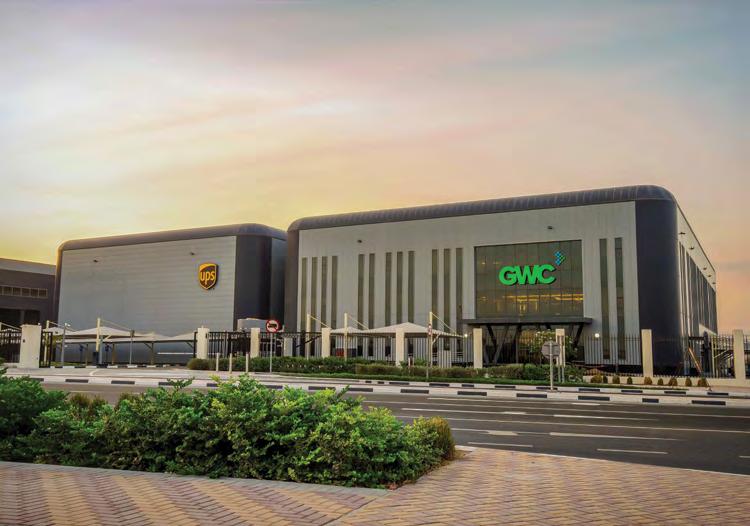
Strong economic growth and a strategic location are among the key advantages that reinforce Qatar as a trade and investment hub in the Middle East. The country’s logistics market has been growing steadily over the past five years - it is estimated to be valued at more than USD 7.5 billion and is estimated to register a CAGR of more than 7% during 2021-2026. The growth of the market can be attributed to the new expansion plans as the country is hosting the 2022 FIFA World CupTM.
With massive investment in infrastructure, numerous new projects, and an ecommerce boom, Qatar’s logistics sector has been expanding rapidly, a development that GWC is committed to support as a leading logistics provider and the Authorized Service Contractor of UPS in Qatar.
Following the recent launched of its logistics hub in Qatar’s Ras Bufontas Free Zone, GWC welcomed Scott Price, President, UPS International, reaffirming a long-lasting business relationship.
UPS’s leadership visit comes at a time when the nation is gearing up for the FIFA World Cup Qatar 2022TM for which GWC
plays the role of Regional Supporter and Official Logistics Provider.
Price began his visit by taking a tour of the GWC Logistics Hub and UPS Customer Centre at the Ras Bufontas Free Zone. This facility with its world class infrastructure, including temperature-controlled warehouses and frozen storage chambers, offers unmatched logistical and last mile delivery options to the aviation, pharmaceutical and events industries including FIFA World Cup Qatar 2022TM.
Price met up with GWC Chairman Sheikh Abdullah bin Fahad Al Thani and Ranjeev Menon, Group CEO to discuss the dynamic logistics sector in Qatar, the work being done by GWC and ways to collaborate in the future.
Speaking about the importance of the logistics sector for Qatar, Sheikh Abdullah bin Fahad Al Thani, Chairman, GWC, remarked, “Qatar is becoming one of the fastest-growing markets worldwide for logistics and has become a favoured destination for international investors. Qatar is not only resolute about becoming a global trading hub, but it is also focused on attracting FDI that will take its logistical capabilities to the next level and GWC is
“THROUGH OUR RELATIONSHIP WITH GWC, UPS’S AUTHORIZED SERVICE CONTRACTOR IN QATAR, WE ARE DELIVERING WHAT MATTERS FOR BUSINESSES LOOKING TO EXPORT AND GROW, WITH SUSTAINABLE SOLUTIONS AND OUR SMART GLOBAL LOGISTICS NETWORK.”
primed to be a part of this journey. With our focus on digital transformation, innovation and sustainability we have been able to adapt to circumstances with agility and will continue to do so.”
Expanding on this thought, Ranjeev Menon, Group CEO, GWC, added that the improving logistics environment has played a critical role in making it increasingly easier to import and export goods to and from the state. “As the transport and logistics sector continues to enjoy infrastructure investments and new projects, there could be more opportunities for the logistics sector. GWC is committed to making processes time-sensitive, quality-centred, customer-driven and efficiency-bound. This is where a partner like UPS gives us the opportunity to build trust, expand, and offer seamless services to our clients, especially the MSMEs”
Price also took a tour of the GWC’s flagship Logistics Village Qatar, which has set a new benchmark in logistics infrastructure. Speaking about his visit and the partnership with GWC, Price said, “Through our relationship with GWC, UPS’s Authorized Service Contractor in Qatar, we are delivering what matters for businesses looking to export and grow, with sustainable solutions and our smart global logistics network. We have witnessed first-hand GWC’s logistic prowess and Qatar’s growing clout as an international trading hub. Working with GWC, we will help Qatar continue to develop and meet its changing needs as it grows within the global economy.”
UPS is one of the world’s largest package delivery companies providing a broad range of integrated logistics solutions for customers in more than 220 countries and territories. Commitment to a sustainable world and a focus on ESG milestones is an important aspect of UPS’s mandate.

Thales has been appointed by Keolis-MHI, the French Japanese consortium, to maintain some signaling and communications equipment of Dubai Metro, the world’s longest automated metro line.
Thales will provide corrective and predictive maintenance, on-demand system enhancements, repairs and spares for the red and green metro lines and the Route 2020 extension.
In March 2021, Dubai Roads and Transport Authority (RTA) selected Keolis-MHI to operate the metro and tram networks for next 15 years. As a world-renowned leader in automated trains, communication and ticketing systems, Thales has been selected by the consortium to optimize the maintenance and performance of the signaling and communication systems of the Dubai Metro.
Thales has a longstanding relationship with the RTA, working with the authority on the Dubai Metro to improve urban mobility and provide the latest enhancements to solutions that are already in service. Thales has equipped the driverless trains on the red line, green line and Route 2020 extension with a range
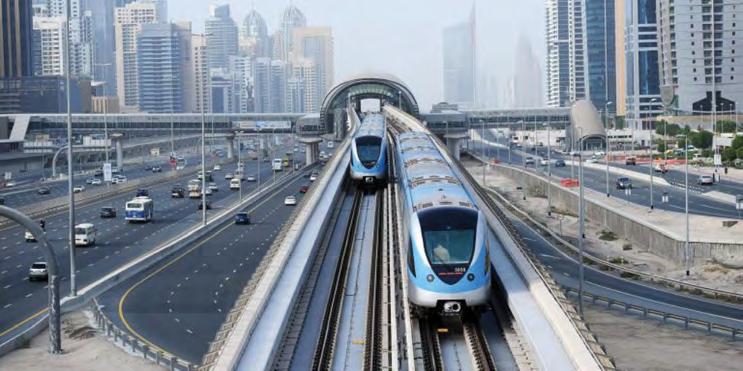
of solutions, including SelTrac™ signaling technology, integrated supervision, telecommunications, passenger services, security and automated fare collection systems powered by Thales’s Transcity Up solution and PG600 gates.
Thibaut Paillat, Mobilization and Transformation Director of Keolis-MHI: “We are committed to enhancing the passenger experience and delivering on RTA’s vision of world-class, smart and sustainable mobility for the people of Dubai. We are pleased to partner with Thales, whose
proven experience and expertise in working with RTA on the Dubai metro network makes them the right trusted partner.”
Bernard Roux, CEO Thales in UAE: “Thales has been a long-standing partner in UAE’s mission for urban mobility, supporting this vision through industry, innovation and education. We are committed to building a future that we can all trust, and we are working closely with KeolisMHI and the RTA to ensure the highest standards of operations and maintenance on the Dubai Metro.”
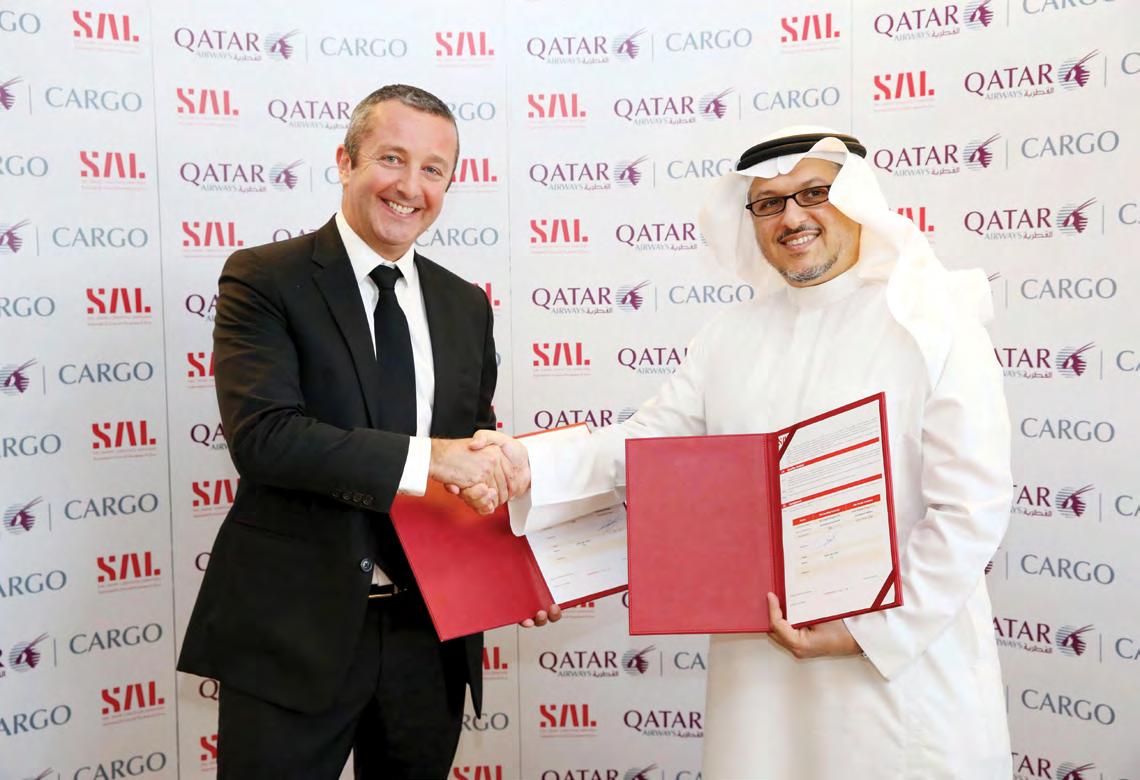
SAL Saudi Logistics Services (“SAL” or “the Company”), a market leading air cargo handler, has signed a cargo ground handling agreement with Qatar Airways Cargo, to provide comprehensive ground logistics support at Saudi Arabia’s main airports, including Riyadh, Jeddah, Dammam, and Medina. This agreement is in line with one of the Company’s strategic growth initiatives of increasing the number of partnerships with leading regional and global airlines that have high cargo shipping capacities.
Hesham Alhussayen, CEO of SAL, commented: “This agreement will enhance logistical operations between Saudi Arabia and Qatar. Moreover, given Qatar Airways’ global reach and substantial shipping capacity, we look forward to providing it with cargo ground handling services to the highest international standards. This new partnership reflects our growing network of international and domestic relationships across airlines, regulators, government agencies, and global industry organizations.”
He added: “Over the year and a half, SAL has responded to the COVID-19 pandemic by boosting our operational efficiencies to
meet the unprecedented demands of handling a wide variety of emergency, medical, and other life essential goods to those who need them most. This journey reinforced our belief in the power of partnerships and, as such, we have signed several cooperation agreements to expand our ground handling and logistics services even further.”
Guillaume Halleux, Chief Officer Cargo at Qatar Airways commented: “Through our agreement with SAL Saudi Logistics Services, we will be offering fast and efficient handling for all types of cargo including cool chain cargo at Saudi Arabia’s main airports. SAL and Qatar Airways Cargo share a common vision of customer centricity and service excellence.”
SAL provides premium cargo chain support for multiple airlines operating into and out of Saudi Arabia’s airports. The Company is also broadening its services within airports and will extend its logistics network to increase connectivity between land, sea and air transportation hubs, economic zones, and major population centres, in line with the Vision 2030 objective of transforming the Kingdom into a global logistics hub.
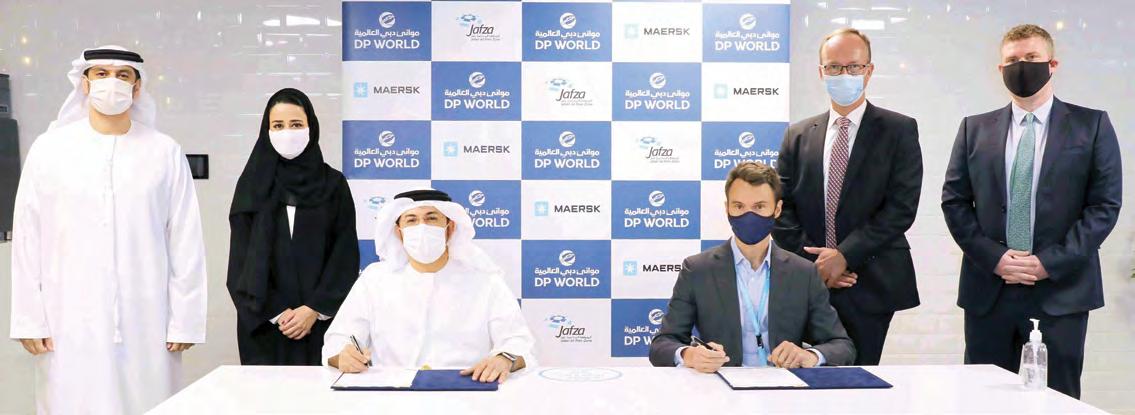
Maersk Kanoo UAE signed an agreement with DP World’s leading trade and logistics hub, Jebel Ali Free Zone (JAFZA) to set up its first Warehousing & Distribution (W&D) facility in the UAE.
The 10,000 sqmt. facility will be located within JAFZA in Dubai. Ocean shipping and inbound logistics and distribution have traditionally been shared amongst multiple stakeholders in the region, resulting in complex logistical requirements.
With its new W&D facility, Maersk is taking an important step towards building a truly integrated solution for its customers wherein the customers will get a single window access to multiple logistics requirements, not only for the goods flowing in and out of UAE, but also to other Middle Eastern countries who use Dubai as a gateway to global trade.
“At Maersk, we are committed to connect and simplify our customers’ supply chains. And in today’s times, adding flexibility to their supply chains has become more crucial than ever. I am excited that we are taking a solid step in this direction with the announcement of our first W&D facility in the UAE,” said Christopher Cook, Managing Director, Maersk UAE.
Maersk’s new W&D facility in Dubai will be an addition to the existing global footprint of over 250 warehouses that cover 1.5 million sqm across 50 countries.
The facility will offer a total storage capacity of 80,000m3 and cater to various types of goods across sectors such as petrochemical, retail and lifestyle, fast moving consumer goods (FMCG), technology and automotive amongst others.
The facility is strategically located with not only a close link to seaport operations but also to the Al Maktoum Airport. This will allow the facility to serve consumers requir-
ing air cross-docking and those moving less-than-containerload (LCL) cargo as well.
“We are proud to welcome Maersk, DP World’s longstanding partner in trade, to set up their first Warehousing & Distribution facility of UAE in JAFZA. Our incredible infrastructure combined with proximity to different operations and businesses lays the right foundation for a setup that Maersk has envisaged for its growth ambitions in UAE.
“Combined with the strength of Jebel Ali Port, JAFZA creates the ideal multimodal trade and logistics hub in the region, connecting businesses to more than 3.5 billion consumers. This move is building on the legacy of DP World and Maersk, and we look forward to extending our support through their journey with us,” said Abdulla Bin Damithan, CEO & Managing Director, DP World – UAE Region & JAFZA.
The Maersk W&D facility will be powered by hi-tech warehouse management system that implements modern technologies and digital solutions for efficient inventory management, track and trace at unit-level and offers rich dashboards for higher visibility and deeper insights.

Dubai Chamber has announced the launch of “Why Africa”, a new initiative highlighting untapped business potential in West Africa, as well as the region’s key economic indicators and competitive advantages.
The initiative comprises indepth analyses conducted by Dubai Chamber and based on recent data from UNCTAD, up-to-date insights for prospective investors and recent trade trends.
The initiative was launched in the lead up to the Global Business Forum (GBF) Africa 2021, which takes place October 13-14 on the side-lines of Expo 2020 Dubai.
“Africa is one of the world’s most promising regions for economic growth, which is featured prominently on many global indicators in recent
years as one to watch out for. Market research is essential for UAE investors who are studying the possibility of expanding their businesses into Africa key African countries. Dubai Chamber’s ‘Why Africa?’ initiative seeks to provide such insights that can help them make a more informed business decision,” said His Excellency Hamad Buamim, President and CEO of Dubai Chamber.
He added that the “Why Africa” initiative serves as a reference point for UAE businessmen to evaluate opportunities across various economic sectors. Such prospects will be in the spotlight at the upcoming GBF Africa in Dubai, where industry players and key decision makers from can offer an insider’s perspective,” HE Buamim said, who described “Why Africa?” and the forthcoming GBF Africa as

important channels that can be leveraged to boost DubaiAfrica trade and investment flows in the coming years.
Among the key data areas covered by the “Why Africa” initiative are: population, GDP, FDI and trade trends. Home to 412.4 million people (as
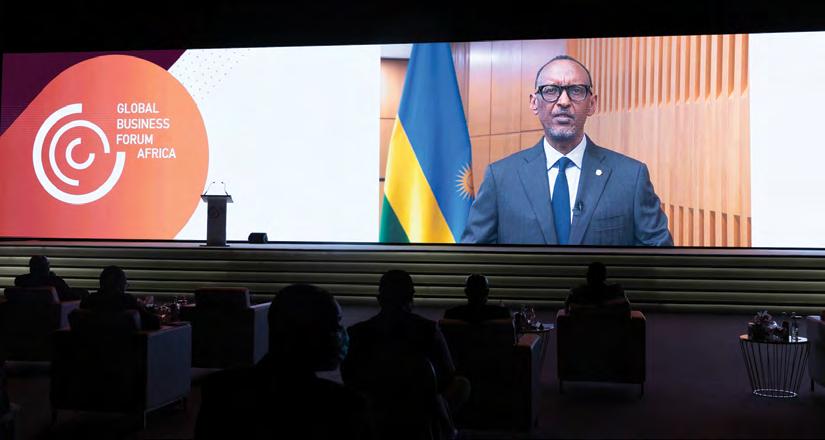
per 2021 estimates), West Africa is Africa’s second most populous region and comprises sixteen countries: Nigeria, Ghana, Senegal, Côte d’Ivoire, Niger, Burkina Faso, Mali, Guinea, Benin, Togo, Sierra Leone, Liberia, Mauritania, Gambia, Guinea Bissau, Cabo Verde, and Saint Helena. It is also one of the most economically vital, accounting for 29% of Africa’s economy.
Sub-Sahara Africa is Dubai’s largest trading partner out of all African regions. In 2020, West Africa accounted for 33.2% of the emirate’s trade with Africa, with a total trade value of $16.8bn (AED61.7bn), making up approximately 75% of the region’s overall trade. It is the continent’s second-largest region in terms of total real GDP, with average GDP value nearing the $709.2 billion mark.

The Head of Marketing and Corporate Communications at LogiPoint discusses his role and how his department is positioning the company as a market leader in the Middle East
Tell us briefly about your role in LogiPoint?
We are a Logistics Real Estate Company acting as an enabling logistics hub and value creation platform for our clients across a wide range of segments. We evolve with the markets we serve, we anticipate the needs of our customers and create innovative new solutions which make their supply chains resilient and elastic, and we do it all while adapting and adhering to the requirements of the regulatory bodies and other stakeholders. In a phrase, we go the extra mile and then a step further to ensure that our clients have the best solutions at their disposal.
My role is two-fold: One, to translate our company’s vision, plans and solutions into a clear and concise message which is readily understood by all our stakeholders. This starts with our internal stakeholders, our employees and our teams, because first and foremost we need to get a buy-in on our vision and action plans from the very people who will help deliver that vision. It then extends to the external stakeholders – our clients, partners, vendors and even competition; and Two, once that message is clearly chalked out, to set the communications channels, whether digital or print, conventional or cutting edge, alive with that message.
Tell us how you are positioning LogiPoint to be a market leader in the Middle East?
In essence, a market leading organization gets two aspects right: It builds market leading solutions to succeed in the markets it serves, and it makes sure to announce that success to its current and future clients.
To position LogiPoint as the market leader in the Middle East is to ensure that we communicate to our markets how the LogiPoint value resonates with the world’s leading organizations every day and how committed we are to our customers by being an enabler of their supply chain. On the one hand, it requires us to keep our clients informed on what new products and solutions we are rolling out or how our existing solutions are evolving with the market needs; and on the other, it means that we need to be seen and heard in the spaces where our prospective new clients are looking for solutions for their Middle East logistics. In a rapidly digitalizing world, this has meant a quick transition from traditional marketing activities to a hybrid model which leverages digital marketing and social media for direct to customer marketing as much as traditional tools. We apply the latest technologies in marketing data analysis to ensure that we optimize our channels and communicate our message to the right customer at the right time.
“IN A RAPIDLY DIGITALIZING WORLD, THIS HAS MEANT A QUICK TRANSITION FROM TRADITIONAL MARKETING ACTIVITIES TO A HYBRID MODEL WHICH LEVERAGES DIGITAL MARKETING AND SOCIAL MEDIA FOR DIRECT TO CUSTOMER MARKETING AS MUCH AS TRADITIONAL TOOLS. WE APPLY THE LATEST TECHNOLOGIES IN MARKETING DATA ANALYSIS TO ENSURE THAT WE OPTIMIZE OUR CHANNELS AND COMMUNICATE OUR MESSAGE TO THE RIGHT CUSTOMER AT THE RIGHT TIME.”
As a marketer, what were some of the key lessons you learned from the COVID-19 pandemic in 2020 and how have you been able to adapt yourself in 2021?
I think the key lesson for all of us has been that market conditions can change overnight for a number of reasons; and while we can have all kinds of contingency plans in place, there can always be a situation when we need to come up with a new plan on the go and execute it immediately. We have all learnt the value of adaptability, resilience and elasticity.
For us marketers, events, conferences, meetings and roadshows became redundant overnight. We needed to devise, learn and practice new ways of engaging with our markets. We adapted by investing in upskilling digital marketing knowledge and skills in our team. The digital space operates at warp speed when compared with traditional marketing space – an event can be planned, lined-up, and executed successfully in a much shorter period than a traditional event or a roadshow. So, we needed to adapt and adapt lightning fast.
In a world when we were all confined to lockdowns, the importance of effective networking in the real as well as the virtual world was also brought home to us. We learnt that the relationships we had been nurturing for months and years stood us in good stead when we needed our partners to go the extra mile for us, just as we went the extra mile for our partners.
The decision to adapt quickly helped us connect with our clients. With lockdowns and working from home becoming the norm, our customers increased their browsing time during the pandemic which created an opportunity for us to plug into this audience and deepen our engagement with our market. The fact that despite the lockdown and the slowing business activity, we have increased our revenue by 25%, expanded our teams across the board, and announced new projects like Warehouse Cluster 5 bears testimony to how well we have adapted to the new norm.
Do you have any marketing tips that helped you become a leading marketing professional in your industry?
Be authentic. Dare to be creative. Live outside the comfort zone. Learn something new every day. Listen intently. Adapt constantly. And most of all, Care! Care for the company you market, care for the client and their business, care for your team, and always care for the message you deliver and how you deliver it. It really is that simple.
What are some of the challenges you face as a marketer in the logistics industry?
It’s a fascinating industry –one which literally makes the world go round by keeping the wheels of the global economy turning. But it isn’t as glamorous as some of the other industries and so perhaps that can prove to be a challenge for marketers sometimes. We don’t work with nearly as interesting budgets as many of our clients do and that means we have to >>>
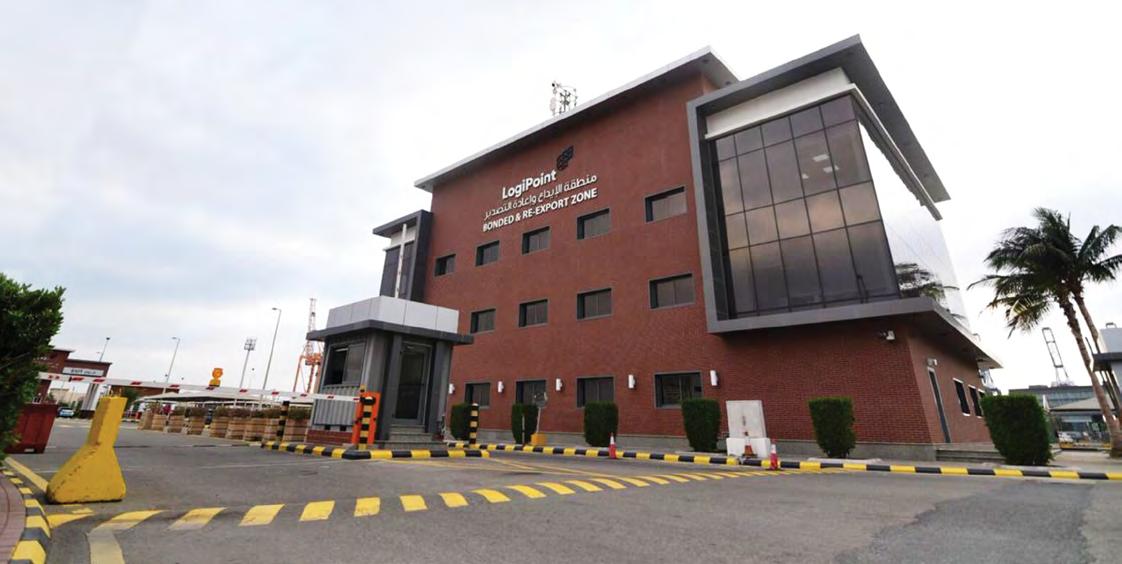
go ‘one step further’ in getting the most bang for our marketing buck. Another challenge can be the time it takes between rolling out a marketing campaign and seeing its impact reflected in real numbers. In both cases, it means that marketers, who live for the spotlight pretty much literally, have to create their own new excitement every day. That can be pretty exciting itself when done right.
What opportunities do you foresee in KSA and outside of KSA for LogiPoint?
Saudi Vision 2030 envisages KSA as a leading global logistics hub enabling trade and value creation. As a pioneering logistics hub in the Kingdom, we like to look at ourselves as the pilot project transforming that vision to reality. Having proven our value to our clients through our Bonded and Re-Export Zone and our Logistics Parks in Jeddah, we are gearing to expand our footprint across the Kingdom with some exciting new projects in the pipeline. We know that we can leverage our experience as an internationally recognized logistics real estate company and a multi-award-winning logistics and supply chain hub in Jeddah to build the
logistics infrastructure of tomorrow across the Kingdom. We see great opportunities to attract foreign investment to the Kingdom’s logistics landscape through our initiatives.
LogiPoint’s success at home creates opportunities abroad for collaborations, partnerships and joint ventures also – especially so as we grow into the Kingdom’s flagship logistics real estate company. Indeed, we are sailing into some exciting times ahead.
What are the key trends you see happening in 2021 in the logistics industry?
The key trends in the logistics industry during this pandemic have been adaptability, resilience and elasticity in supply chains, and LogiPoint as an enabling logistics platform creating value for its clients will have a great role to play in catering to these trends.
The pandemic has brought the role of the shipping and logistics industry into sharp focus. The container shipping industry is experiencing an unprecedented windfall, equipment shortages at export origins is creating all kinds of challenges
for industries from foodstuff to automotive to construction, changing consumption patterns have already forced many industries to adapt quickly and it looks like everyone will need to continue to adapt until we can put the COVID-19 genie back in the bottle. In the meanwhile, resilient supply chains will come out tops and such resilience will only come if there is elasticity built into those supply chains. It’s hard to see how this will all pan out in the short term or the long term, but what we do know is there isn’t going to be a dull moment in this industry for a long time. What else can a marketer ask for?
How important is teamwork for you?
It’s a cliché but it rings true every day. Teamwork is everything. Especially so, when we have had to adapt so quickly to so much and as we have made the transition from a largely conventional marketing team to one that thrives on the cutting edge of digital marketing. I am thrilled and grateful at the same time that we proved to be a team that could make this transition smoothly and seamlessly –and have loads of fun too while we were at it.
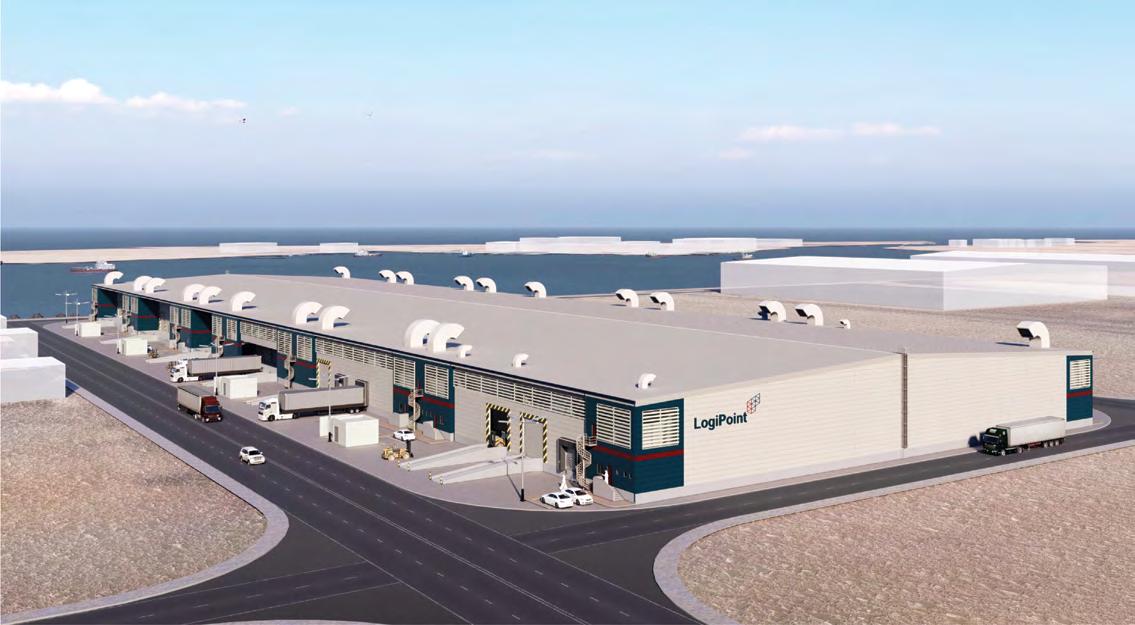
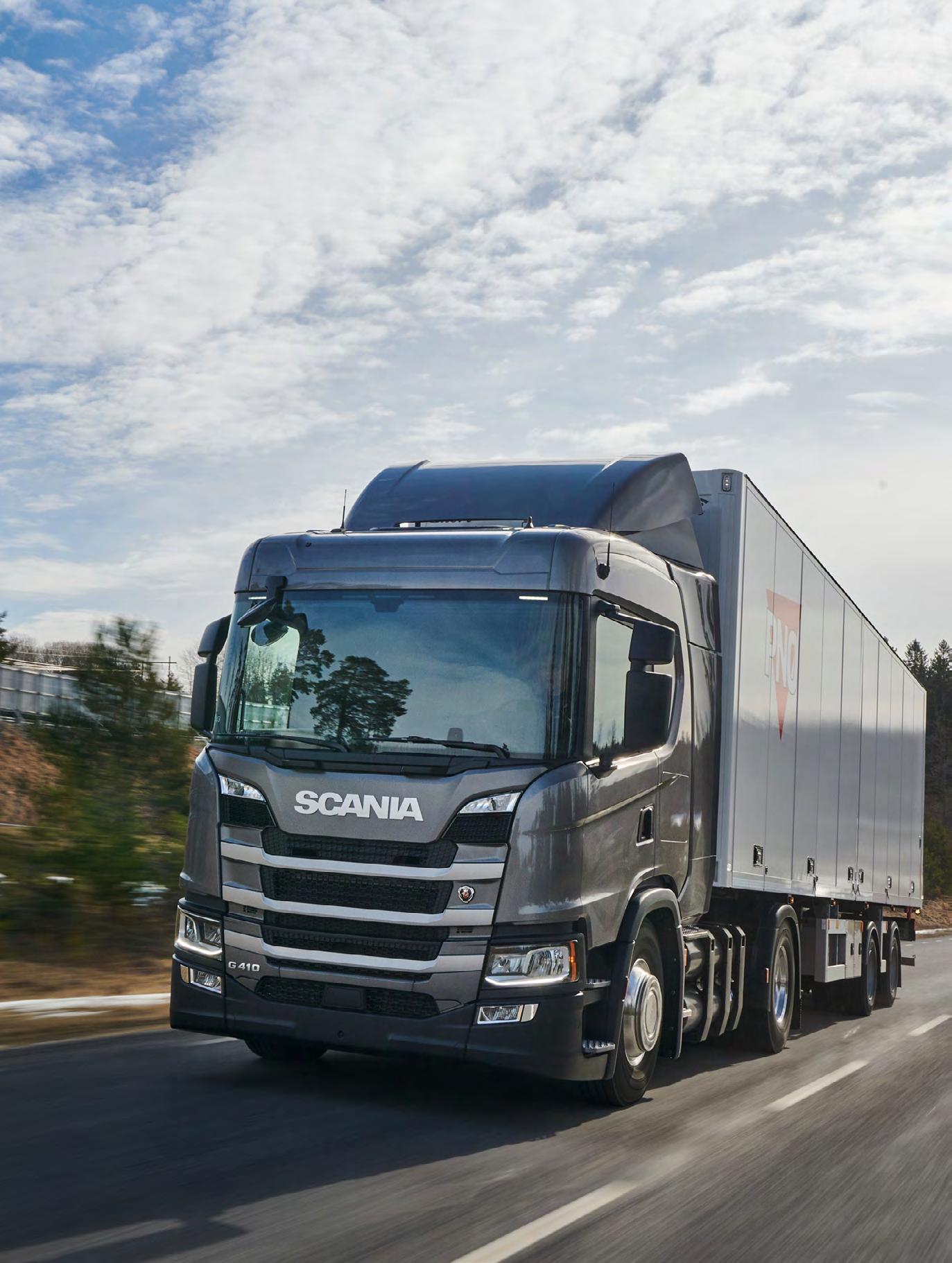

Choosing a gas powered truck will put you and your fleet in the forefront of sustainable truck operations, reduce your CO2 emissions and achieve Euro 6 Emission Legislation without using Adblue or Particulate Matter. Well suited for both urban and regional operations. It can be matched with R, G, L or P cabs and combined with either the Scania Opticruise gearbox or automatic transmissions.
For more information about our Alternative Fuels options, please visit www.scania.com/ae/en/home/products-and-services/articles/alternative-fuels.html
KASUN ILLANKOON EXPLORES IN DETAIL
AL-FUTTAIM LOGISTICS’ AWARD WINNING COLD CHAIN WAREHOUSE FACILITIES THAT CATERS TO THE F&B INDUSTRY
Since Al-Futtaim Logistics’ inception in 1980, it has grown from strength to strength and has achieved several milestones.
The company has accolades due to the introduction of innovative technologies, new service offerings such as the cold store for food & beverages, recovery, pick and drop automotive services and last mile delivery (B2C).
The growth of Al-Futtaim Logistics as a integrated third party logistics provider (3PL) over the past four decades was built on three key pillars according Dr. Raman Kumar, Managing Director at Al-Futtaim Logistics, who in the past 26 years, has overseen one million sqm of infrastructure development, and delivering services to multinational blue-chip companies.
“Initially, we had three main criteria that we wanted to achieve which included operational efficiency, increasing our customer satisfaction, and increasing employee engagement. Once we managed to achieve this, we looked at our business expansion and what additional value we can give to our customers.”
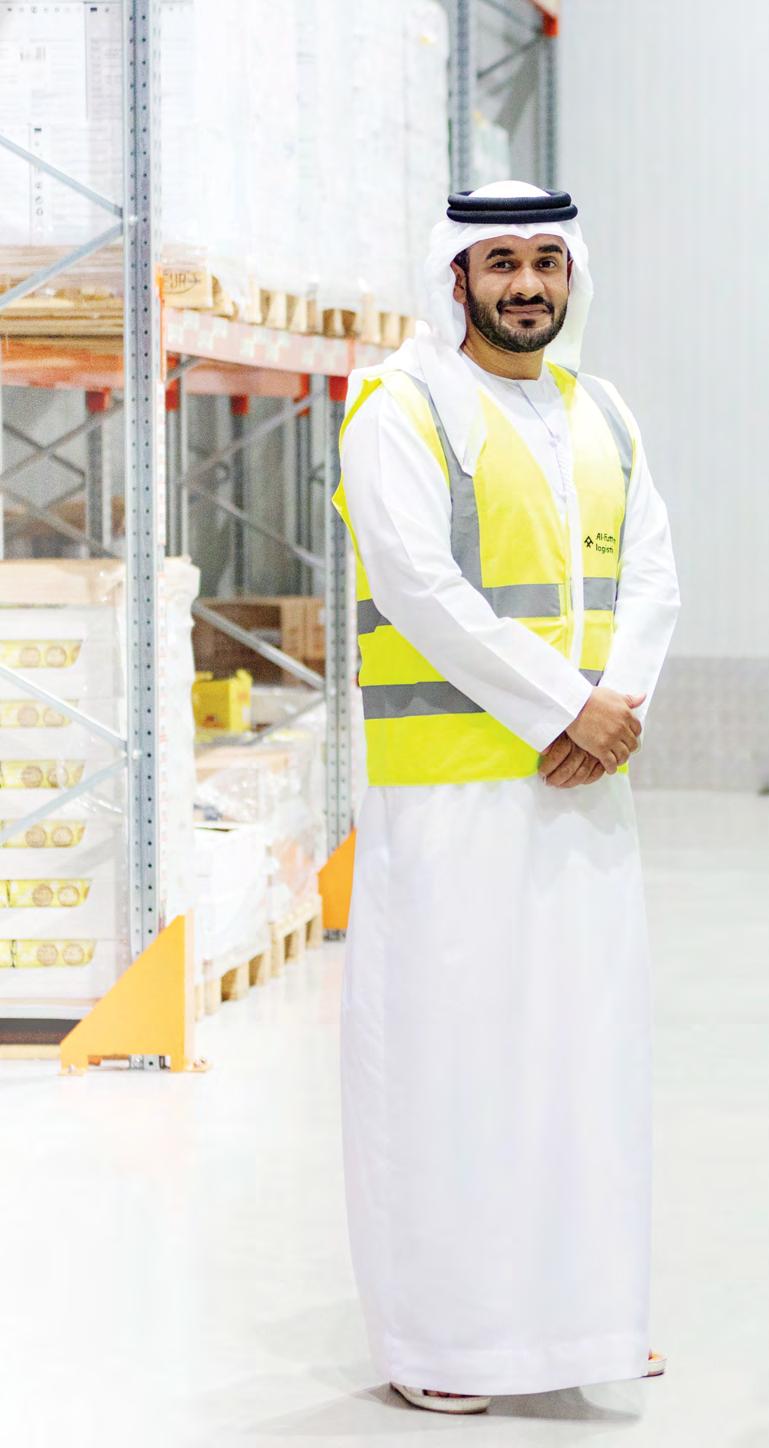
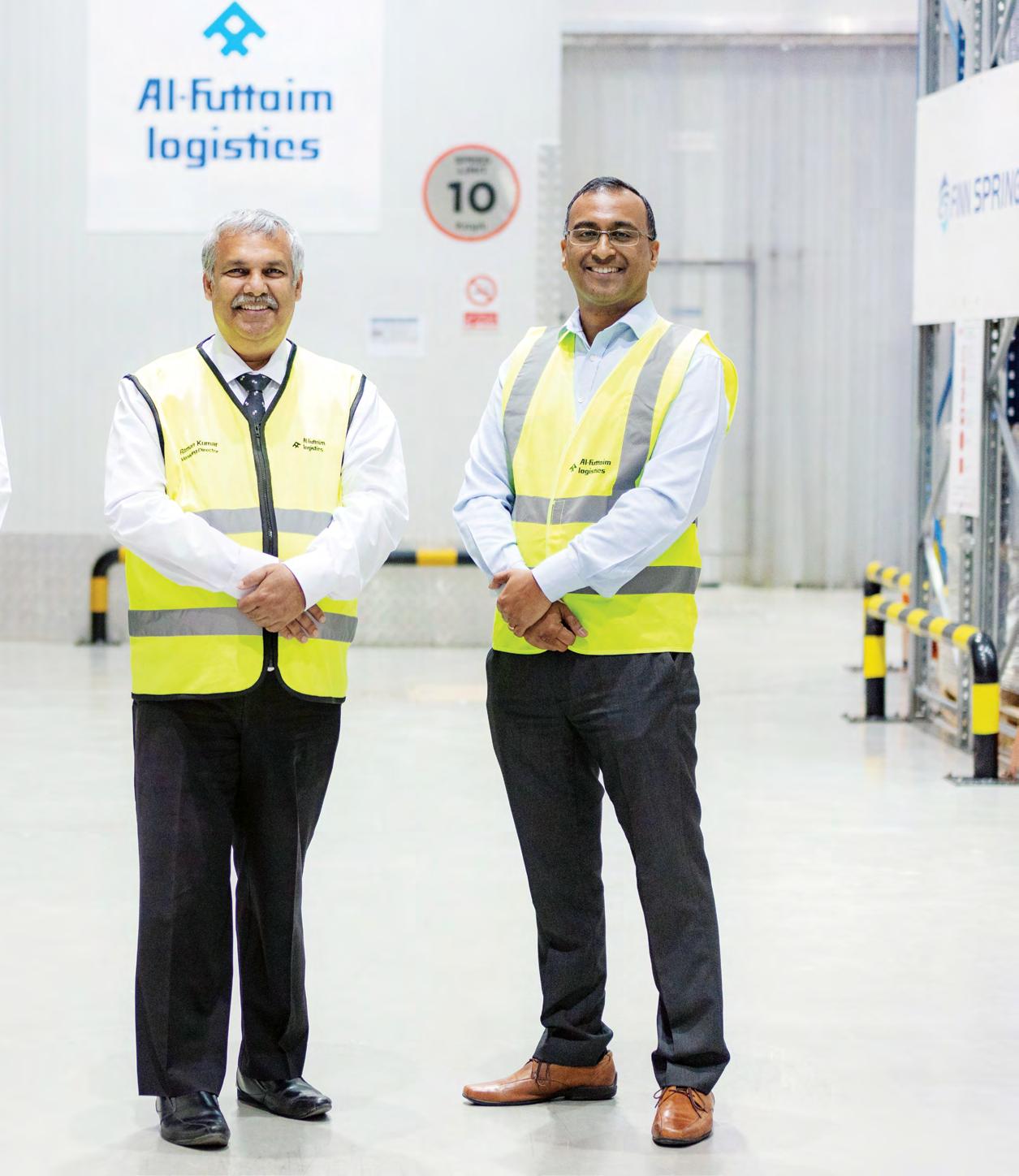
The on-going pandemic didn’t seem to deter Al-Futtaim Logistics when it came to their business operations. Quick and adaptable changes were necessary, and this was at the forefront of the company’s plans.
“At Al-Futtaim Logistics we had a strong business continuity plan in place which allowed us to manage the crisis.”
Kumar added: “The biggest challenge we saw was the mindset of our customers especially when it came to delivery services and the steps that would need to be taken to ensure that everyone was safe. We had to implement a new HSE strategy and follow strict protocols to ensure that everyone would be protected during our services.”
Vargheese Anthony, General Manager, Freight-Forwarding at Al-Futtaim Logistics, further added to some of the challenges faced during the initial part of the pandemic. “In the freight market stakeholders such as shipping carriers ports, road and rail transport, customers warehouses had some sort of a stoppage or limited services and accesses from the beginning to the last mile stage of the delivery process. The limited access and absence of timely services of stakeholders
that created unprecedented delays in the total supply chain.”
However, Vargheese highlighted that UAE being a strategic hub and it’s infrastructure facilities helped facilitate business continuity much quicker than most of the world.
“During the last four decades the UAE has been transformed as a leading hub due to the facilities, infrastructure, and government policies that are pro-business here in the UAE. Ultimately the world connects through the UAE due to its strategic position in the trade, this allows companies like us to continue to provide the necessary services even during these hard times.”
Al-Futtaim Logistics recently expanded into food and beverage logistics services earlier this year, opening their state-ofthe-art, tech-friendly, and innovative cold storage warehousing facility located in Jebel Ali Free Zone.
The announcement came as the company scales up its end-to-end fulfilment services to meet the needs of eCommerce and marketplace clients with all-inclusive last-mile home delivery solutions.
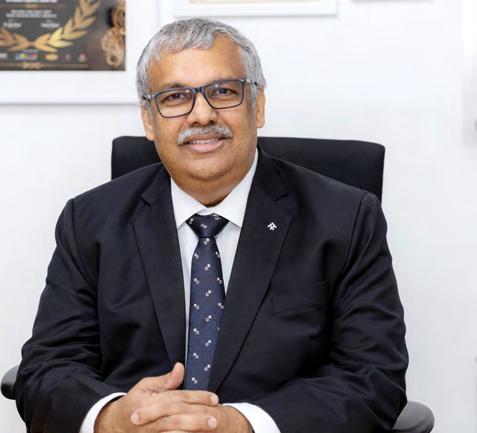
Our operational precision maximises the replenishments for our clients, whilst optimising their supply chain cost effectiveness, which has become even more important to our customers in today’s market conditions.

According to analysis done by Dubai Chamber of Commerce and Industry & Euromonitor, online sales within the UAE’s food and beverage market surged 255% year-over-year in 2020 to reach $412 million. The analysis predicted the value of online food and beverage sales in the country to reach $619 million by 2025 and record a compound annual growth (CAGR) of 8.5% over the 20202025 period.
Al-Futtaim Logistics made an immediate impact with their expanded services and was awarded the Cold Chain Service Provider at the recent Logistics & Transport Awards 2021.
Kumar on the awards win, said: “Moving and storing temperature-sensitive packaged food and beverages requires continuous commitment and dedication to the highest quality standards. Our operational precision maximises the replenishments for our clients, whilst optimising their supply chain cost effectiveness, which has become even more important to our customers in today’s market conditions. Thanks to our associates, loyal customers and the management team for their continued support.”
The facility integrates world-class warehouse management technology including capturing all the attributes of the products combined with double-deep storage that optimises space utilisation and enables high throughput.
The multi-temperature facility ranging from +18°C to -22°C has scalable space for the growing needs of their customers.
Binoy George, General Manager, Warehousing, and Last Mile distribution at Al-Futtaim Logistics shed some light on the features of the cold storage warehouse facility.
“The facility is built with airlocked loading docks, and the temperatures are mapped throughout the facility to ensure that the temperature integrity is being maintained. In today’s dynamic environment we can offer our customers multi-temperature fulfilment from chilled, ambient to frozen. The product storage can range from fresh food, confectionery, beverages, deep-frozen products with the added advantage of being flexible with multiple fulfilment options.”
Binoy George, General Manager, Warehousing, and Last Mile distribution at Al-Futtaim Logistics
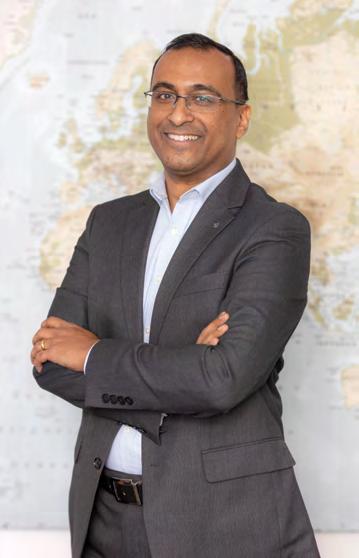
The cold store has been designed for individual piece-pick and pallet picking, value-added services such as product regulatory compliances, date coding, Arabic labelling to cater to the ‘speed-to-market’ orders. The facility also offers a dedicated onsite inspection for local authority thereby fast-tracking food sample inspections considering compliances with stringent municipality standards, including the ISO Food Safety Management practices.
“Our customers get the advantage of real time visibility, seamless system integration, inventory data in real time and in some cases instant retrieval of data,” explained Binoy.
The temperature within the facility itself is one of the most important to maintain when it comes to F&B products. A slight change in temperature would dull the freshness of the products and Binoy stresses the importance of keeping the temperature consistent from the warehouse to the end consumer.
“One of the most critical features and challenges is maintaining the temperature across the whole chain. The chain has multiple touch points right from the product of origin with right packaging and static temperature to be moved into the transport unit which also needs to be at
The digitisation of fulfilment centres will be the next area of focus.
the right temperature moving it into the destination port, first-mile and into the temperature-controlled storage facilities.”
“The facility will have temperature mapping across our multi-temperatures storages that is monitored 24/7 with a leading technology partner. If there is a temperature variation beyond the deviation limits that has been set then an alert is sent out to the response team who needs to take immediate corrective action,” added Binoy.
There are environmental impacts too to be taken into consideration which is why the facility has an airlocked loading bays to prevents any environmental impacts or foreign material from affecting the storage.
“Even a small detail like a fast-action door getting jammed affects the temperature, so every detail needs to be looked into to ensure the temperature is maintained,” said Binoy.
Al-Futtaim Logistics’ entire chain is built around a process which requires validation and check points that minimise risks and to take quick action in case there is a temperature deviation.
All Al-Futtaim fleet is fitted with vehicle monitoring technology to ensure supreme temperature integrity for the consumers. Out of the box solutions also include local services for customers who require product registration and documentation services, making it easy to avail all the services from a single 3PL.
The importance of digitisation and data collection is seen as a critical component in Al-Futtaim Logistics and something that Kumar wants to see more of in their operations especially when it comes to integrating their services.
“We have a yard management, transportation management, and warehouse management technologies which all operate as separate entities within AlFuttaim Logistics. I want to integrate this and use our digital platform to allow the customer to easily observe their order and allow for more transparency,” said Kumar.
Binoy echoed this sentiment as well particularly in last mile delivery, “We see that the digitisation of fulfilment centres will be the next area of focus. At Al-Futtaim Logistics we are trying to see how to automate our processes that will help to reduce repetitive tasks, and how we can move information from one system to another with efficient integration.
We are working to see how we can do inventory counts with multiple cycle counts in the fulfilment centre, using drone and RFID technology.
The ultimate goal will be how quickly we can move through the chain to get the product to our end consumer.”
When it comes to F&B, the market segment has high demand and depending on the type of product, where on-time fulfilment can be an important competitive advantage to have.
“Today, we see those customers with premium products with shorter shelf-life and quicker turnaround to the retailers or direct consumer. Having this data is critical for us to make a proper assessment of what needs to be dispatched in a timely
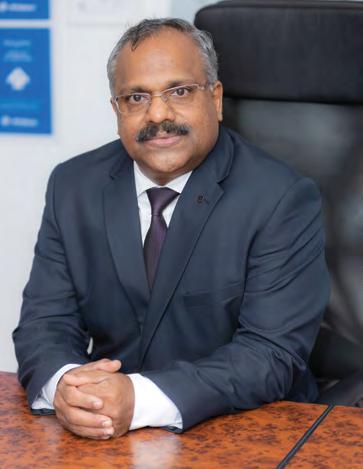
The world connects through the UAE due to its strategic position in the trade. This allows companies like us to continue to provide the necessary services even during these hard times.
manner and make the necessary changes to our chain,” explained Binoy.
Kumar emphasised how data retrieved by their team assisted them in making necessary changes to their warehouse management.
“We are able to analyse our warehouse configuration for example. The fastmoving goods are now placed in a better position for efficiency and for pick up as customers in this segment now want same day delivery.
Even though technology will change the way we operate, we believe that our workers too will adapt to this new technology as it doesn’t just enable the business to improve but allows the customers the opportunity to see a smooth flow of their products being moved from one place to another,” said Kumar.
Overall, Al-Futtaim Logistics’ momentum and adaptability to changing consumer preferences in the F&B logistics sector has ensured sustainable growth and expansion of services from UAE, to KSA and Oman.
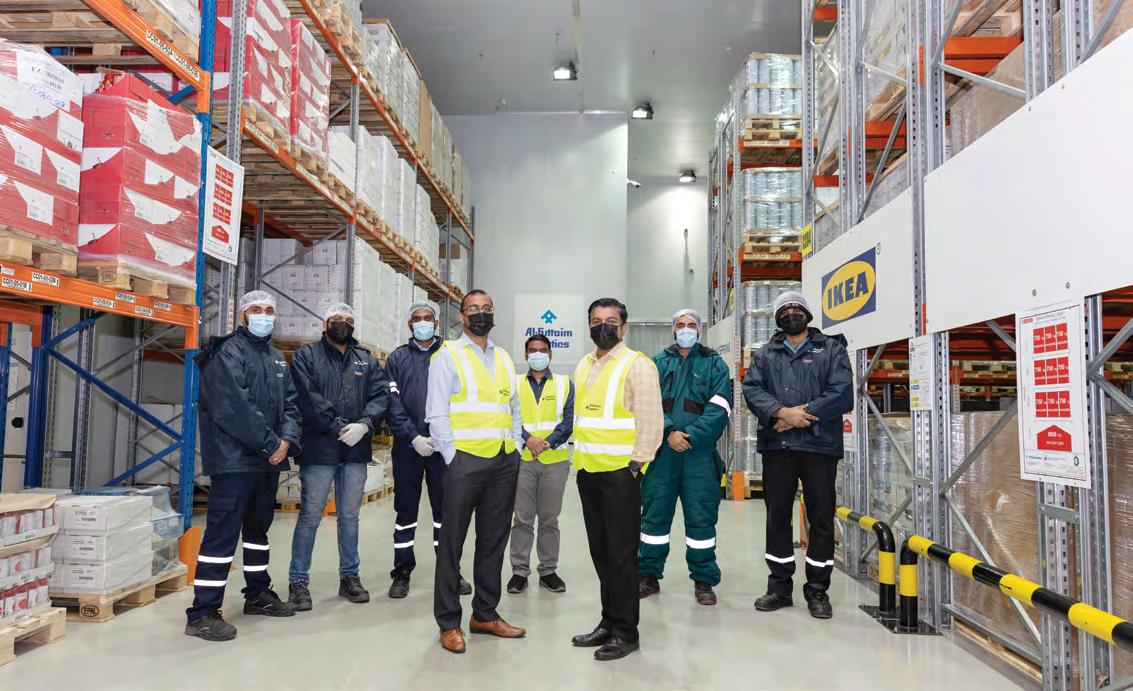
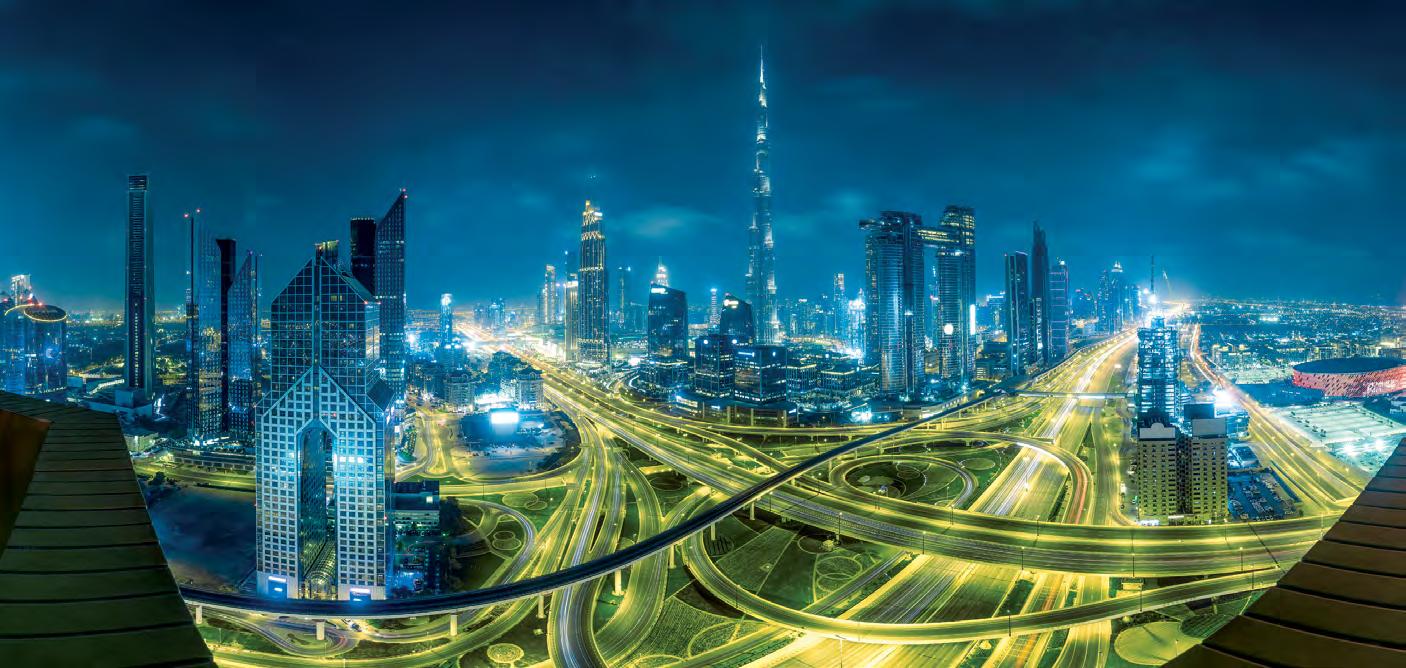



















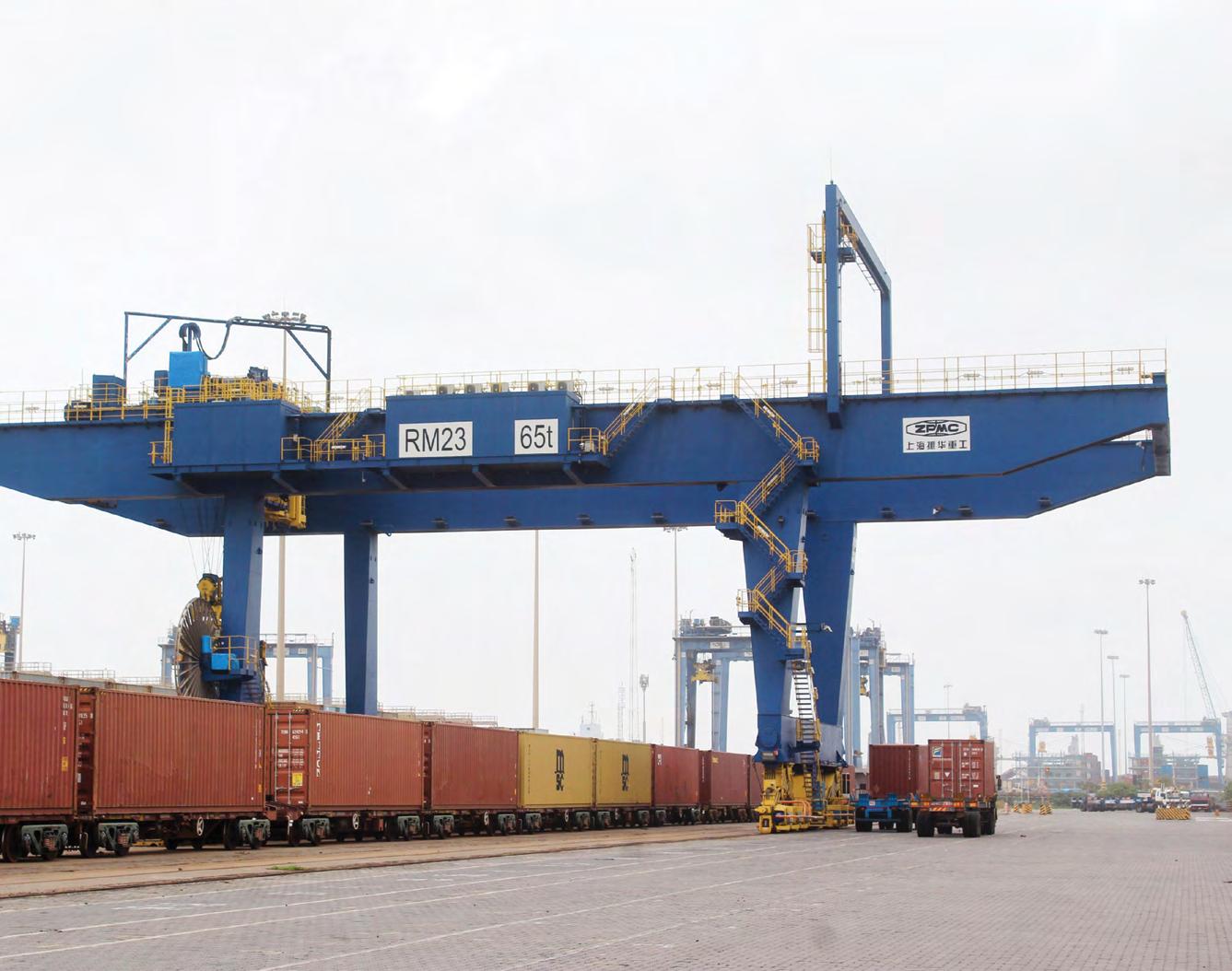
CARGOES LOGISTICS BY DP WORLD IS A NEW DIGITAL LOGISTICS SOLUTION, PROVIDING INSTANT ONLINE CARGO BOOKING, HIGHLY EFFICIENT MOVEMENT, AND ADVANCED TRACKING, FROM ORIGIN TO DESTINATION
DP World, the leading provider of smart supply chain solutions, today announced the launch of its new digital logistics platform, CARGOES Logistics. The platform provides customers with a single-window solution enabling seamless, safe, secure, and efficient movement of their cargo. With CARGOES Logistics, customers can choose from multimodal logistics options, ship freight by sea, road, and/or rail, get instant quotes, swift booking confirmation and multiple secure payment options in three simple steps – Search, Choose &
Book. It will offer easy and swift cargo booking from origin to destination. The first phase of launch will immediately offer customers access to book cargo from UAE to India as well as India to multiple destinations across the Middle East, Subcontinent, Southeast Asia, the Far East and North Africa. CARGOES Logistics aims to address complexities and inefficiencies that exist in global supply chains including multiple handovers, inefficient tracking and limited visibility of a shipment across the supply chain. The new digital platform will enhance transparency by providing deep tracking of cargo with real time insights, end to end visibility & predictability,
an all-inclusive price with no hidden charges and highly efficient end to end digital experience backed by DP World’s extensive network of integrated logistics assets and best-inclass service levels. It will facilitate ease of doing business, boost reliability & flexibility and provide seamless experience to customers for all their logistics needs.
Rizwan Soomar, CEO & MD, Subcontinent, DP World said: “This announcement is a testament of our commitment towards enabling smart logistics globally. With CARGOES Logistics, our aim is to build and offer highly efficient, seamless and end-to-end transparent supply chains.
The new digital solution will simplify the container shipping experience providing visibility across all modes of transportation through smart enablement of IOT based solutions. We will continue to invest in technology and work with our customers to drive innovation, continually add new products & features and provide solutions to meet their global logistics needs.”
Pradeep Desai, Chief Technology Officer, DP World concluded: “Demand for digital solutions has never been higher and will only keep growing. We are leveraging technology to create value for our customers and help drive growth. CARGOES Logistics by DP World is part of the broader CARGOES software suite of products. DP World created CARGOES to solve pressing challenges caused by supply chain related inefficiencies. It’s a holistic solution powered by technology targeting all aspects of global trade including Finance, ERP, Tracking, Terminal Operating System, Customs software and enabling end-to-end logistics. We are excited to provide Logistics as one of our first CARGOES offerings to customers.”
We are the leading provider of worldwide smart end-toend supply chain & logistics, enabling the flow of trade across the globe. Our comprehensive range of products and services covers every link of the integrated supply chain – from maritime and inland terminals to marine services and industrial parks as well as technology-driven customer solutions.
We deliver these services through an interconnected global network of 181 business units in 64 countries across six continents, with a significant presence both in high-growth and mature markets. Wherever we operate, we integrate sustainability and responsible corporate citizenship into our activities, striving for a positive contribution to the economies and communities where we live and work.
Our dedicated, diverse and professional team of more than 56,000 employees from 140 nationalities are committed to delivering unrivalled value to our customers and partners. We do this by focusing on mutually beneficial relationships – with governments, shippers, traders, and other stakeholders along the global supply chain –relationships built on a foundation of mutual trust and enduring partnership.
We think ahead, anticipate change and deploy industryleading technology to broaden our vision of more efficient, transparent and resilient world trade. We achieve this by leveraging disruptive innovation to create the smartest and most effective logistics solutions, while ensuring a positive and sustainable impact on economies, societies and our planet.
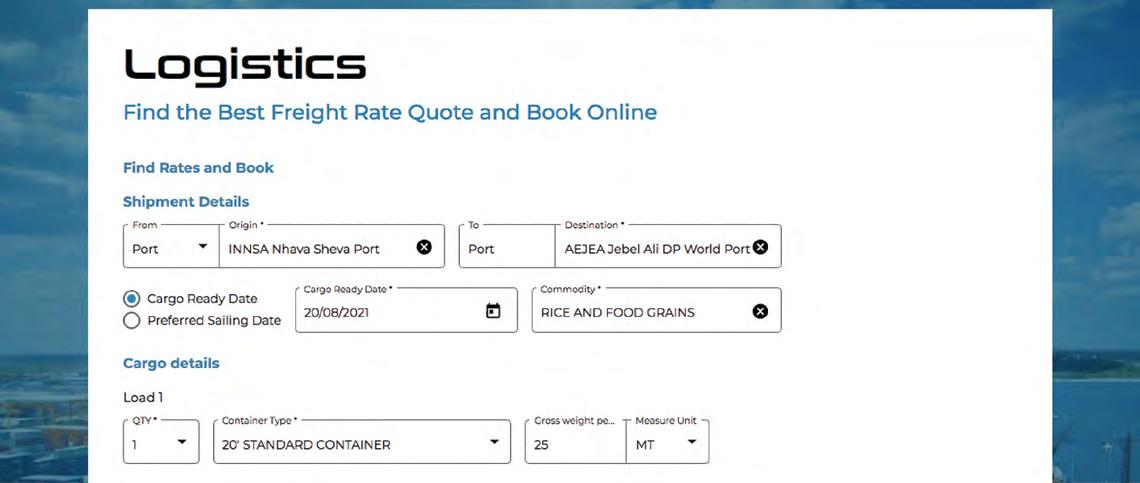

With the global warehouse automation market forecast to double by 2025, the region’s automation market will be propelled by digitalisation initiatives led by end-user industries.
That’s according to a global leader in robotic, data-driven and flexible automated solutions Swiss-
log Middle East. Its General Manager, David Dronfield, says the predicted growth will be the result of strong macro and industry growth drivers.
“The automation market across the region is set for a paradigm shift due to digitalisation initiatives by end-user industries, and the global warehouse automation market is set to double by 2025, on the back of eCommerce fulfilment and increasing warehousing labour costs,” he said.
Putting automation into laser focus will be the 11th edition of Materials Handling Middle East (MHME), the region’s dedicated trade show for warehousing, intralogistics and supply chain solutions, which, alongside its sister event Hypermotion Dubai, will bring together key industry stakeholders for three days of face-to-face networking from 2nd-4th November at the Dubai Exhibition Centre (DEC).
Dronfield, who is also a member of the MHME Advisory Board, explained that the role automation will play in the Industry 4.0 is far-reaching.
“The Middle East is gearing up to take advantage of digitalisation in a big way, and we are seeing companies in the region making real investments for real re-
sults today. It is an emerging player in the worldwide map, and across the key industry sectors having a competitive advantage will be the key to the ongoing success and development of the organisation as well as the region.”
Echoing this sentiment is Navin Narayan, CEO of ACME Intralog – Platinum sponsor of MFME. According to
Narayan, the Middle East has been slower than other markets when adopting physical automation solutions, however, the pandemic has increased manpower costs and squeezed overall operational margins meaning businesses have had to quickly realise the value of implementing automation technologies in their production and distribution lines.

“The pandemic has definitely accelerated the adoption of semi-automation and automation solutions. Our region has been relying heavily on manual labour for material handling and warehouse operations which were challenged as Covid-19 hit us all. New regulations for social distancing and drastically increased customer demand when it comes to delivery accuracy and speed made it impossible to stick to the status quo. To remain competitive, increased efficiency is key that could not be achieved by adding more human resources.”
Running across the three-day event will be Scalex, a free-to-attend content platform gathering some of the industry’s brightest minds to tackle topics such as; ‘Port Projects: building and upgrading port facilities and the creation of environmentally sustainable facilities’; ‘The potential of asset-sharing to shape the logistics sector (unlocking unused capacity in capital intensive assets - trucks, warehousing, ships)’; and ‘UAE’s ambition to be a global go-to destination for blockchain adoption and New supply chain and logistics business models to support industry 4.0’.
“The warehousing and logistics industry is going through a significant digital transformation driven by in warehousing intralogistics and the regional supply chain is in overdrive. Through Materials Handling Middle East and Scalex, we will create the best platform for the early adopters and major disruptors to display services and solutions that will undoubtedly improve productivity, efficiency and more across warehousing, intralogistics and supply chain,” said Josué Paulos, Show Director for Hypermotion Dubai and Materials Handling Middle East.
“THE PANDEMIC HAS DEFINITELY ACCELERATED THE ADOPTION OF SEMIAUTOMATION AND AUTOMATION SOLUTIONS. OUR REGION HAS BEEN RELYING HEAVILY ON MANUAL LABOUR FOR MATERIAL HANDLING AND WAREHOUSE OPERATIONS WHICH WERE CHALLENGED AS COVID-19 HIT US ALL.”
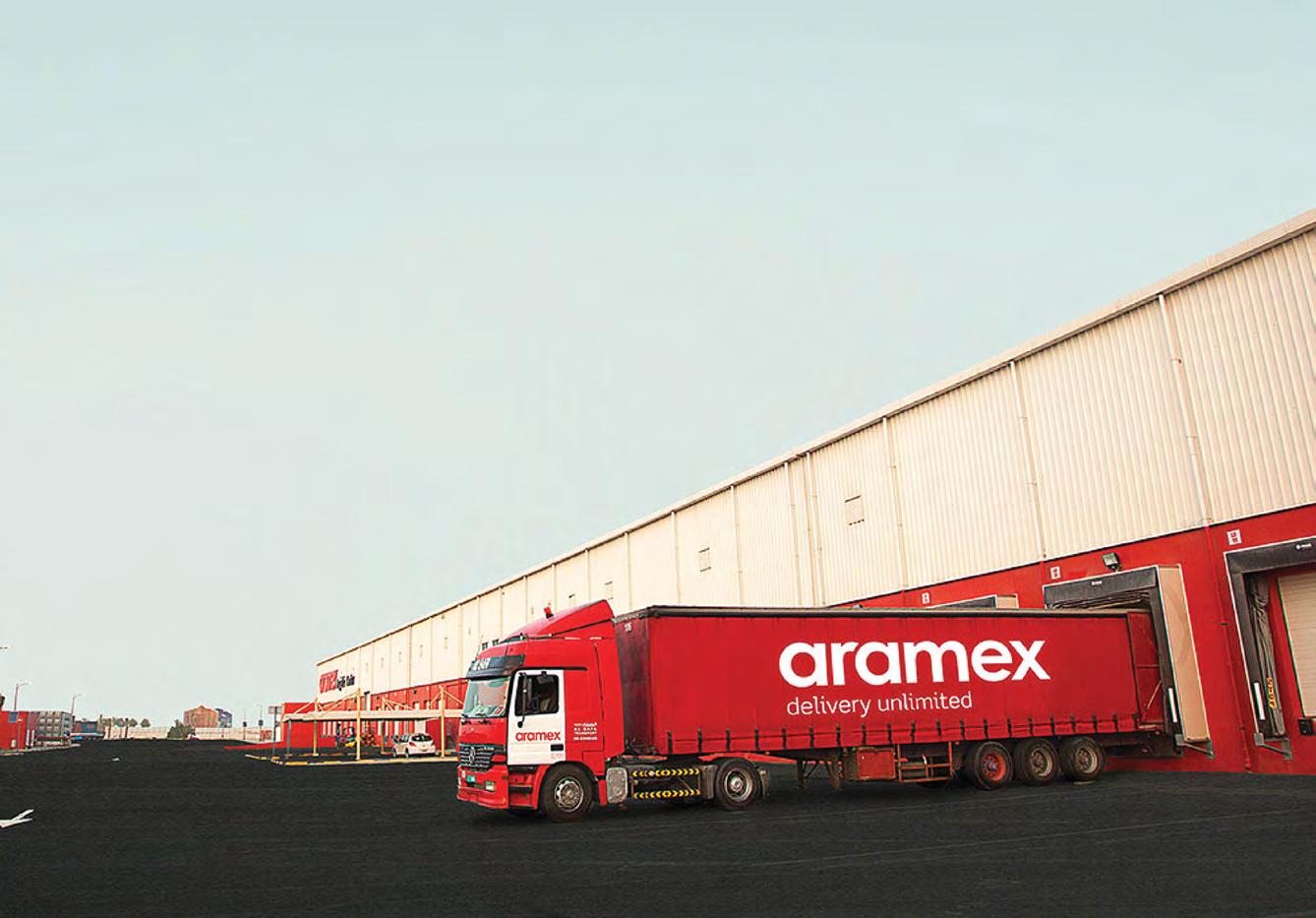
Aramex is adopting a new operating model with an objective of enhancing customer service levels and operating efficiencies while capturing greater global market share within both the B2C and B2B customer segments
Aramex Express, which includes international and domestic delivery solutions, will serve the B2C customer base including Shop & Ship, eCommerce, FMCG, SMEs and other customers needing innovative last mile solutions. Meanwhile, Aramex Logistics, which includes air freight, sea freight, land freight, and warehousing and distribution, will serve B2B customer base across multiple industries including oil & gas, healthcare and pharmaceutical, aerospace, retail, and fashion, among others.
To ensure the new operating model can successfully create greater value for multiple stakeholder groups, a chief operating officer role has been created for each of Aramex Express and Aramex Logistics. Mohammad Alkhas has been appointed COO for Aramex Logistics. Alkhas is a senior logistics executive with over 24 years of experience in leading large and diverse teams within the transport and logistics sector. He is re-joining Aramex, having spent 19 years with the organization through 2016, when he most recently served as Aramex’s Regional CEO for the GCC.
Alaa Saoudi has been appointed COO for Aramex Express. Saoudi joined Aramex in 1998 and has held several senior geographic and operations positions. He was most recently Global Senior Director of Ground Operations for Aramex.
All support functions, including Finance, Human Resources, Procurement, Digital and Customer Contact Centres will be provided centrally by Aramex’s Corporate Centre, which will also manage M&A and Strategy, Legal, Risk and Compliance to ensure global control and alignment across the newly formed clusters.
Othman Aljeda, Group CEO of Aramex, said: “The global transportation and logistics industry is undergoing a fundamental shift, driven predominantly by the boom in eCommerce, supply chain disruptions, customers’ increasingly discerning expectations and the turbo speed of digitisation.
“For Aramex to stay ahead of the curve and remain a competitive, reliable, and sustainably growing industry leader, we decided to focus on capturing growth opportunities by decoupling our core services.”
He added: “By creating Aramex Express and Aramex Logistics we will have a more agile company, focused on capturing the right opportunities to grow and diversify our customer base, investing in and deploying the best and
latest technologies, and operating at higher efficiency levels. The investments we are making in our business today will enable us to provide our customers with improved service levels, and our shareholder with long-term value.”
To support Aramex’s global growth ambitions, the organisation has also created a new regional structure composed of the Americas; Europe; Sub-Saharan Africa; Middle East, North Africa, and Turkey (MENAT); GCC; South Asia and North Asia; and Oceana.
Each region will be led by a regional vice president and will have dedicated commercial, and operations teams focused on growing Aramex’s local footprint and driving commercial opportunities and customer-centric innovations.
Each region will report to Andy Van der Velde, who has been appointed president. Van der Velde was previously Aramex’s Regional CEO for GCC, Australia, New Zealand, and Southern Africa.
Aramex has also appointed Dr. Johannes Distler as chief strategy officer, a newly created role, with the purpose of ensuring the development and execution of Aramex’s corporate strategy as well as the group’s international expansion and M&A agenda. Dr. Distler joins Aramex from Roland Berger, where he was a partner in the firm’s Dubai office.
Alkhas, Saoudi, Van der Velde and Dr. Distler will all report directly to Othman
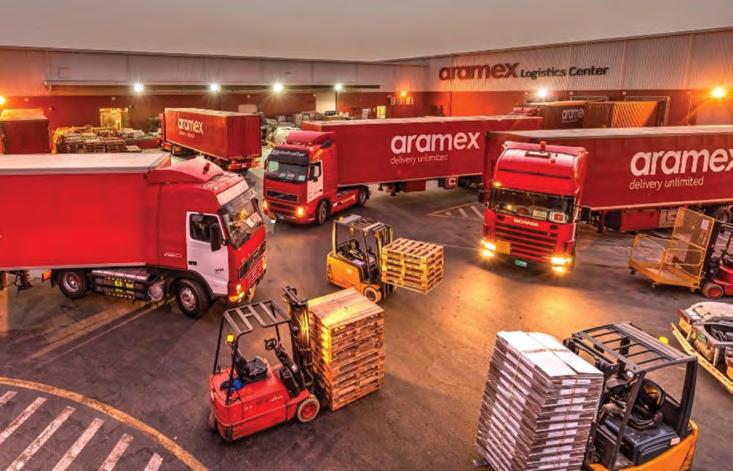
“WE SEE GOOD GROWTH OPPORTUNITIES IN THE EXPRESS SEGMENT, WHICH CURRENTLY REPRESENTS 70% OF OUR REVENUES.”
Aljeda, Group CEO of Aramex. Thomas Kipp, who was appointed Aramex Group’s COO in November 2020, is leaving the company to pursue other interests.
Othman said: “We see good growth opportunities in the express segment, which currently represents 70% of our revenues. We intend to continue to grow our express business by creating new trade lanes domestically and internationally and scaling up ground operations to cater to growing customer demands, while continuing to invest in technology and automation.”
The logistics business accounts for 28% of its revenues and it intends to aggressively grow its footprint in core markets, and markets that will enable trade flow into the region.
He added: “We are investing in specialised warehouses to cater for high potential verticals and are also scaling up infrastructure beyond main cities to provide extensive coverage. On freight forwarding, we see good growth opportunities in several sectors, one example being O&G with the revival in global oil prices and trade activity.”
According to recent market studies, the global logistics industry is expected to reach USD1.23 billion by 2025, registering a compound annual growth rate (CAGR) of 7.5% from 2020 to 2025. This is underpinned by a robust projected growth across all logistics segments. The global eCommerce logistics industry is expected to reach a value of USD657 billion in 2025, recording 8.6% CAGR in the forecasted period.
The international express and parcel segment is expected to rise 9.2% to reach a value of USD117 billion while domestic express and parcel is anticipated to register an 8.6% growth to USD543 billion. Meanwhile, both freight forwarding and contract logistics are projected to record a 6.2% growth to reach USD242 billion and USD331 billion respectively.
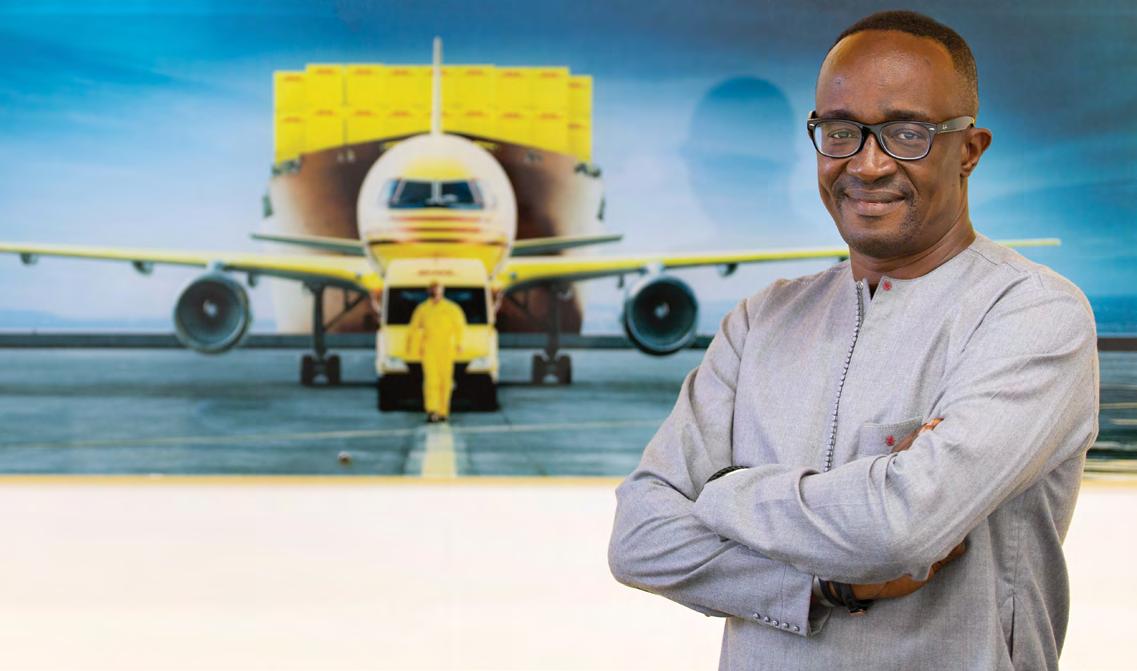
Amadou Diallo, CEO of DHL Global Forwarding Middle East and Africa, tells us about the five lessons learnt from a global pandemic
More than a year since the first COVID-19 case came to light, uncertainty still drives our decisions. Despite widespread vaccinations and control mechanisms put in place across the globe, we continue to fight a prolonged battle. As challenging as the situation may be, it contains within it the seeds of learning and growth. Here are five lessons distilled from the pandemic, critical to the future of our business.
1. PEOPLE OVER PROFITS
Best-in-business companies have always operated with this ethos. But COVID-19 really drove this lesson home. A people-centric approach during challenging times is not just ethically correct, but it also makes sound business sense. If employees are happy and motivated, their productivity is greater than those who feel undervalued or unappreciated. Businesses should remember that it’s their people who work to achieve the profit in the first place, therefore they must always
be priority. People-first companies are not only great places to work, they are also profitable enterprises.
2. CRISIS SITUATIONS HELP TO BENCHMARK RESILIENCE
Uncertainty and volatility are the only certainty today. Logistics providers had to showcase real strength in situations when things are not going according to plan. We expect the unexpected, and plan for it. This builds resilient organizations.
From shipping large quantities of personal protective equipment (PPE) to communities that urgently needed it, to shipping shipping vaccines around the world so they can be used to save lives, logistics providers have been crucial in the fight against the pandemic. We have the monumental responsibility of distributing approximately 10 billion doses of vaccines over the next two years.
Uncertainty also drives flexibility and agility. Businesses and people
have demonstrated incredible agility and resilience in adapting to the new situation. New transport solutions and connections have been set up without anyone being able to travel. Digital such as a new Transport Management System enabled supply chains to keep going.
Technology has enabled us to stay connected with colleagues through the pandemic, and manage businesses across geographies. Though frontline workers in the operations are not able to work from home, the pandemic proved the power of teamwork in logistics. If there is one thing that the pandemic has taught us, it is that together we are stronger. For a successful transition to remote work, trust is one of the most powerful leadership skills. A global company can be managed remotely – but not without trust. You have to trust your people and equally important, tell them that you trust them.
In the UAE, we have witnessed the exponential rise of e-commerce, supply chain innovation and digital transformation, which are contributing factors to the growth of logistics sector.

As many parties are involved in getting goods moved around the world, digitalisation has the potential to ease not only the life of shippers but make processes even faster and leaner. The recently launched
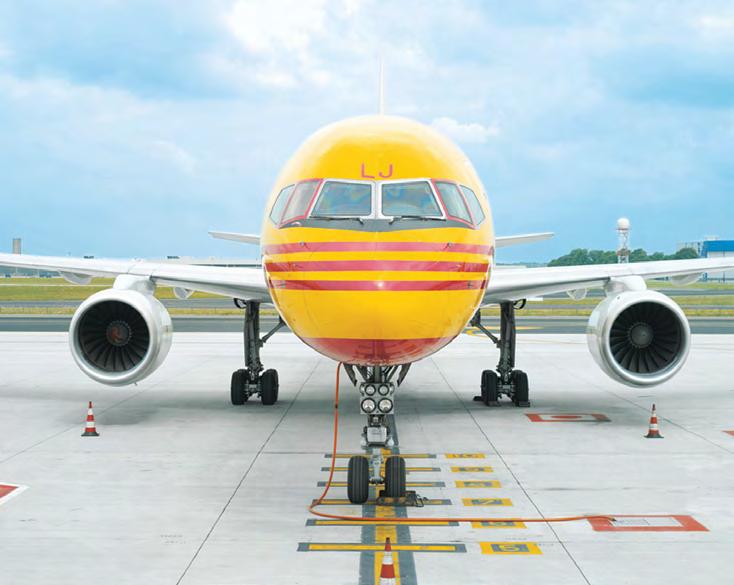
customer platform myDHLi is one example, while Saloodo!, the digital road freight solution platform, is leading the movement to ‘Uberize’ trucking. It helps carriers manage their fleets better and optimize the capacity of their full truckload (FTL) shipments.
A globalized world stands not only for trade, but also for the free flow of information, vital supplies and people. Back in April last year when air freight capacity was severely impacted due to border closures, DHL Global Forwarding had operated dedicated flights carrying PPEs as well as essential supplies from China to Middle East and Africa via Dubai, ensuring a steady supply of these life-saving items especially for frontline healthcare workers.
We are learning to share information, and this is resulting in growing prosperity, not only economically but also socially and socio-culturally. Without a globalized world we wouldn’t be able to fight this pandemic. We hope that the level of globalization will even increase after COVID-19, which will put us in a stronger position to face existing and future challenges.
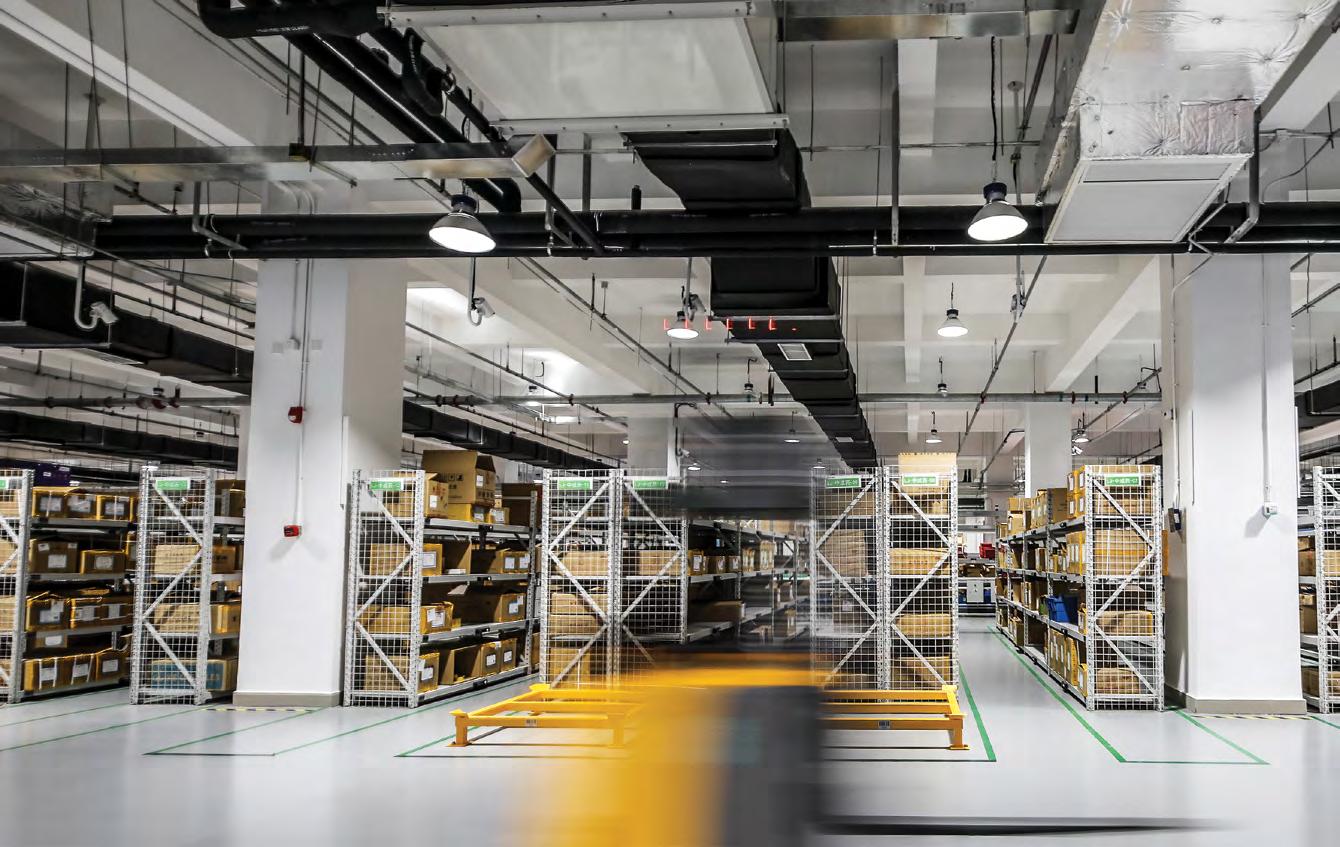
BY DAVID DRONFIELD, GENERAL MANAGER, SWISSLOG MIDDLE EAST
Robotic material handling systems, such as pallet shuttles and goods-to-person AS/ RS systems, are proliferating because they are ideally suited to meet the needs of today’s warehouses. Offering exceptional storage density, high throughput, enhanced sustainability and improved accuracy and productivity, these systems are helping warehouse operators and supply chain managers deal with SKU growth, fluctuations in demand and changing customer expectations.
In the Middle East and North Africa (MENA) region, the increase of demand and use of e-commerce and e-retail has forced the logistics sector to work towards increasing productivity and costefficiency. According to a recent report by Statista, the value of e-commerce warehouse usage is expected to reach 500 million USD in the Middle East region by 2024, from 180 million USD in 2018 and the overall warehouse automation market in the region is expected to reach a value of 1.6 billion USD by 2025. Some operators with older warehouses
may feel left behind by this new wave of warehouse technology. They may believe they have no choice but to live with the limitations of their current processes and systems or may even be considering investing in a new build to address the challenges they face. Fortunately, there is a third alternative: adding automation to the existing facility.
RETROFITTING WAREHOUSES WITH ROBOTIC AUTOMATION
Unlike older mechanized approaches to warehouse automation, today’s robotic-
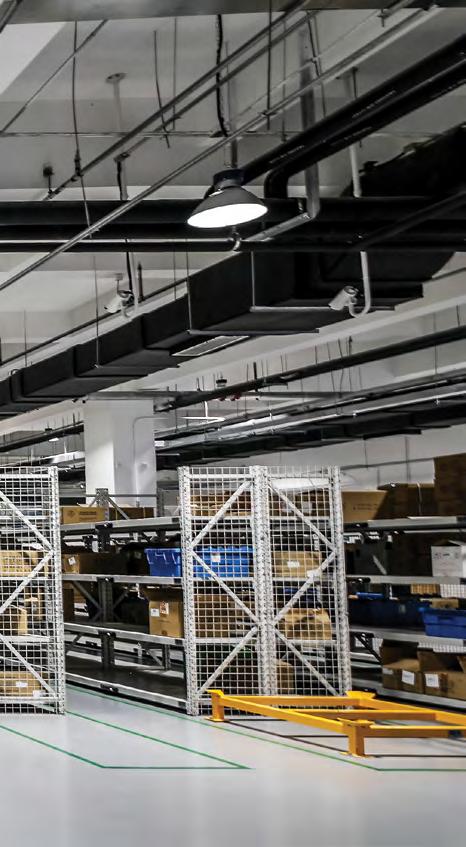
based systems are adaptable to their environment. Their flexible configuration options allow them to work in a variety of building shapes and sizes and even around obstructions such as columns. They also feature a modular design that enables a phased approach to implementation that can allow the warehouse to continue to serve customers while automation is deployed.
There are some challenges that may need to be addressed in older facilities, such as cracked or uneven floors. However, it’s much less expensive to repair or replace a cracked floor than to build a new facility. And lower capital costs are just one of the many benefits you can realize by adding automation to an existing warehouse.
ASRS systems, such as Swisslog’s PowerStore pallet shuttle, can deliver up to 60% more storage capacity than exist-
“THE SWISSLOG SITE ASSESSMENT PROCESS IS DESIGNED TO HELP YOU DETERMINE THE FEASIBILITY OF YOUR FACILITY TO ACCOMMODATE AUTOMATION AND IDENTIFY ANY LIMITATIONS THAT MUST BE ADDRESSED BEFORE AUTOMATION CAN BE DEPLOYED.”
ing shelfing or pallet storage, expanding warehouse capacity and freeing up space for other processes. In each-picking applications, goods-to-person AS/RS systems, such as AutoStore and CycloneCarrier, deliver productivity improvements of 200% to 300% with picking accuracy of 99% or better.
Automation can also reduce the environmental footprint of the facility by minimizing interplant and intra-plant transportation requirements, and the automation software delivers better visibility into product inventory, enhanced performance reporting and synchronization of manual and automated processes.
In short, you get the full benefits of today’s data-driven, robotic, and flexible automation technologies faster and at lower cost than you would by building a new automated warehouse.
The first step in adding automation to an existing building is a site assessment. The Swisslog site assessment process is designed to help you determine the feasibility of your facility to accommodate automation and identify any limitations that must be addressed before automation can be deployed. One of the benefits of working with Swisslog is that we offer a full range of pallet-handling as well as case and each-picking technologies, allowing us to tailor solutions to specific structural requirements as well as density and throughput objectives.
Regardless of the automation system selected, implementation must be carefully managed to minimize disruption on current operations. Our process can often be accomplished while the facility continues to serve customers using established manual processes.
One approach that has been successful is to consolidate inventory in one area of the warehouse to free up space for the initial phase of the automation deploy-
ment. The first module of the automation system is then deployed and brought online as a pilot and the warehouse operates in hybrid manual-automated mode while the next module is deployed. Alternately, we’ve worked with customers who have been able to transfer some inventory to secondary locations to free up space for the first phase of implementation. Once the first module is deployed, inventory is transferred back to the facility and the increased storage density provided by the automation system can be leveraged to free up space for additional modules.
If you’re dealing with SKU proliferation, experiencing deteriorating service levels, struggling to maintain efficiency and productivity goals, or having trouble recruiting and retaining labor, a warehouse automation project can solve your operating problems while extending the life and value of your warehouse.

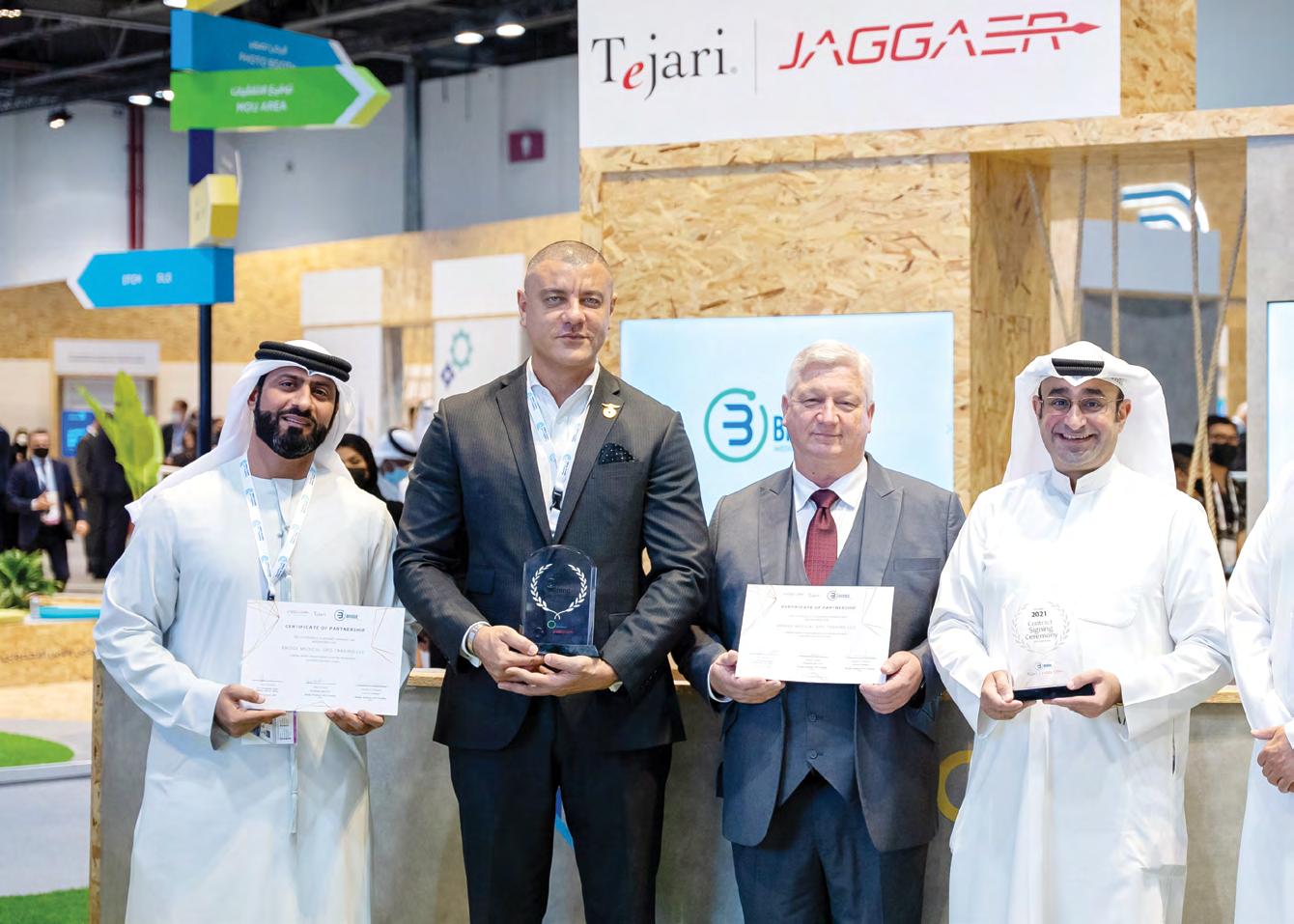
Bridge Medical GPO Trading LLC has signed a Memorandum of Understanding with JAGGAER which will see the start-up healthcare GPO leveraging JAGGAER’s Tejari spend management procurement platform
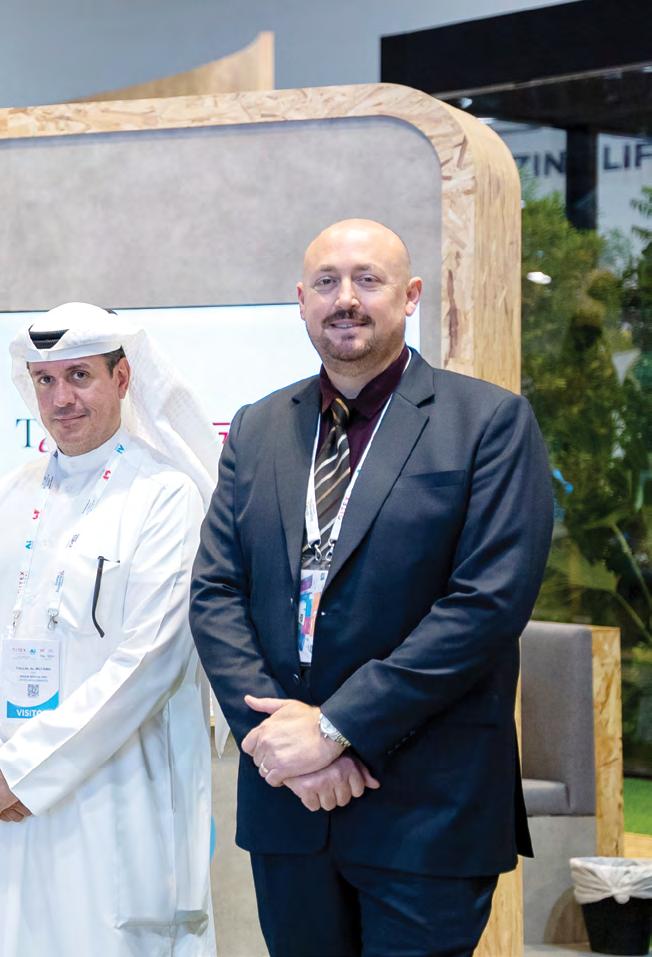
One of the regions first Healthcare GPO’s (Group purchasing Organisation) launched into the United Arab Emirates this month, announcing an MOU at GITEX Technology week with leading software supplier JAGGAER. Group purchasing organisations are memberbased entities that assist healthcare providers such as hospitals and clinics to optimise their supply chain implementing best practices from around the world, adopting leading technologies and processes that deliver real savings and efficiencies to the bottom line of its members.
Since the beginning of the global COVID 19 pandemic healthcare procurement and supply chain leaders have seen unprecedented pressure to optimise their processes and drive efficiencies. Bridge Medical GPO is an industry focussed organisation that delivers value to each stakeholder level and they do not compete with product distributors or vendors. Their vendor value chain is quite extensive and includes reducing supply chain and logistics costs through aggregation and supply efficiencies.
A GPO aggregates purchasing volume of members for healthcare consumables and medical devices and develops contracts with suppliers through which its members may procure at group pricing and terms if they choose to. GPOs typically provide contracted discounts on a-z of healthcare procurement items including medical supplies, nutrition, pharmacy and laboratory.
In the United States, GPOs started evolving towards the end of the 1950s. As of 1962, there were 10 GPOs in existence. Growth of GPOs accelerated in the 1970s and by the end of that decade more than 120 GPOs were in operation. As GPOs grew during the 1980s and 1990s, so did their membership. For example, in 1992 it was estimated that 88 percent of hospitals were members of a GPO (Scott,1995). By 1994, there was only 27 U.S. hospitals that did not belong to a GPO. The typical large GPO today includes hospitals and clinics of all sizes and institutions providing both general and specialized health services.
Bridge Medical GPO Trading LLC has signed a Memorandum of Understanding with JAGGAER which will see the start-up healthcare GPO leveraging JAGGAER’s Tejari spend management procurement platform.
The new partnership, which was officially unveiled at GITEX Technology Week 2021 and will see JAGGAER provide a SaaS based source-to-pay solution designed to automate routine processes with the help of machine learning enabling global procurement teams to create even more value in both the short and the long term.
JAGGAER was selected ahead of 10 other software platforms thanks to its global best practices and ability to meet the needs of Bridge Medical GPO and its customers.
The company has now outlined a plan which will focus on delivering performance optimisation across the entire UAE healthcare sector. This will include implementing industry-best practice for procurement and optimising supply chains to bring increased commercial benefits to hospitals, distributors, and providers in the region.
Darren Martin, Director of Commercial and Group Operations, said: “Powerful Procurement Partners is our value proposition and represents who we are and our promise to our members. We are excited to be signing this MOU today with JAGGAER and working together with Dubai Smart Government to deliver the Vision of H. H. Sheikh Mohammed bin Rashid Al Maktoum, Vice President and Prime Minister of the UAE and Ruler of Dubai.”
Hany Mosbeh, Vice President of Sales Middle East & Africa, JAGGAER, said: “We are delighted to partner with Bridge Medical GPO to help them deliver this unique and innovative service in the Middle East. JAGGAER is committed to focusing on utilising the latest technology and innovation to support organizational procurement goals and this dovetails extremely well with Bridge Medical GPO who have built an excellent business model focused on optimising supply chain costs within the healthcare industry.”
Jim Counts, President and CEO of Bridge Medical GPO, concluded “Speed to value is fundamentally what we deliver for our members, bottom line improvement to hospital profitability is our guarantee.”

du, from Emirates Integrated Telecommunications Company (EITC), has recorded a significant milestone in its 5G rollout strategy to date. The telco provider’s 5G network has become the fastest in UAE. This achievement is the result of du’s efforts to drive the 5G agenda in recent times, with huge investments allocated to develop the 5G network, enhance performance and efficiency, and ensure customers avail the very best communication services.
5G is fundamental for enhancing the telecommunications sector and raising
the country’s global competitiveness, with sustainable infrastructure advancements and world-class connectivity for all topmost priorities. Today’s announcement reaffirms du’s commitment to driving the 5G agenda, and the telco provider now anticipates achieving 90% nationwide population coverage by the end of 2021 with the UAE’s fastest 5G network.
Fahad Al Hassawi, CEO, EITC, said: “5G is a key enabler to support telecommunications sector development, advance business sectors, and enhance the UAE’s position in various global competitiveness indicators. Today, as we announce these prestigious accomplishments, du is proud
to be catering to the needs of our customers, communities, and country through the fastest and most capable 5G network in the UAE. In line with our continuous efforts to improve national digital infrastructure and ensure all segments of the UAE avail the best experiences in the world of communication, we pledge to continue building on recent progress and deliver even greater value moving forward. Our ambition of network coverage for 90% of the UAE population ultimately means that more individuals and companies are benefiting from the capabilities and potential of this technology.
The prestigious position of du’s 5G network in terms of median throughput has also been reaffirmed for six months running with Q2 and Q3 2021 independent 5G benchmarking reports conducted by independent entities.
Al Hassawi added: “du continues to promote innovation across all services, drive business excellence, and play a vital role in enhancing well-being and economic and societal progression. Our efforts to improve the efficiency and performance of our network have resulted in us delivering the fastest network speeds in the UAE, which is a testament to our commitment to providing the best connectivity experiences for our customers across the country. We look forward to continuing with these efforts and expanding 5G coverage to all residents of the UAE in the near future.”
Backed by a comprehensive roadmap for success, du’s ‘on our network, your experience is always exceptional’ campaign has demonstrated efficiency, effectiveness, and robustness since its introduction, building confidence and showcasing reliability at key moments in consumer’s daily routines. Gaming, broadband, and video call experiences have all been enhanced, with du aiming to facilitate the best network experience. Such efforts have paved the way for today’s ultra-fast and lag-free 5G network, which has empowered the local gaming community, enabled consumers to enjoy powerful multimedia experiences at home and the workplace, and brought families and businesses together to enjoy seamless connected experiences for moments they are needed the most.
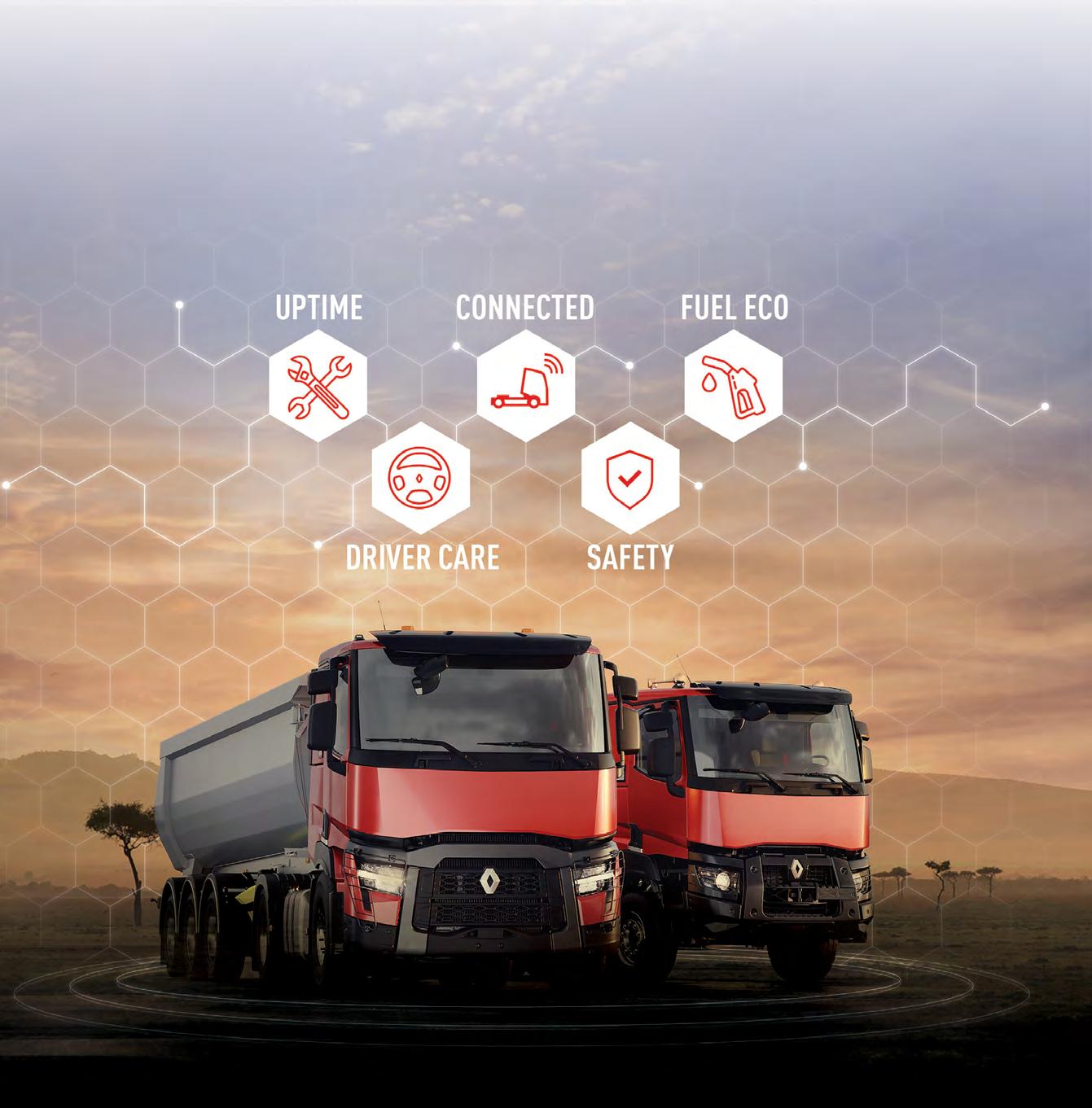
Renault Trucks bringing major improvements in terms of driving comfort, on-board comfort, safety and productivity.
More comfort, More uptime, more safety, more fuel savings We have gone a long way to support you better.

The UAE is leading the Middle East and North Africa (MENA) in the adoption of electric vehicles with its charging station to vehicle ratio among the world’s highest, according to a newly released whitepaper.
Produced by the Clean Energy Business Council (CEBC) MENA, the whitepaper says the UAE now boasts 240 grid-linked slow charging public stations - 80% of which are in Dubai.
The 24-page whitepaper - Electric Vehicles in the UAE: Challenges and Opportunities – and its five-point recommendations will be presented at Hypermotion Dubai 2021, the region’s first and only event to address major mobility transformation, which will run at the Dubai Exhibition Centre at Expo 2020 from November 2 – 4.
“This white paper provides recommendations for policymakers in the UAE and around the region and a comprehensive overview of the EV market in the UAE, covering the current policy landscape, infrastructure, challenges hindering the growth of the market and the opportunities for businesses,” explained Stephan Gobert, Chief Strategy and Innovation Officer at ENGIE and Board Member at CEBC. “While the paper mainly analyses
the UAE market, many of the learnings could be extended to the rest of the MENA countries.”
The paper shows that while the UAE has made great advances in EV infrastructure development, the models available and consumer and corporate appetites to shift from conventional vehicles implementation of the transition is slow.
“The existing EV infrastructure is not perceived as sufficient. Many companies may install their own charging stations to tackle this issue. Furthermore, most companies plan to make their charging stations available for public use, in addition to being used for internal needs.
“This effort by the private sector could support the UAE in strengthening its EV infrastructure,” says the report. “While new models are coming to the market and prices are going down with time, compared to previous years, we can still see that one of the barriers to entry is the purchase price of EVs, which are set to change in the near future with economies of scale and advances in battery technologies.”
The Clean Energy Business Council MENA is on the advisory board of Hypermotion Dubai which is hybrid event of three strategic conferences, high-end networking, competitions, and pitches covering all aspects of future of intelligent transport systems, and the region’s only event for the disruption, decarbonization, and digital transformation of transport, logistics and mobility.
“This whitepaper provides essential insights into the infrastructure and perception challenges and solutions impacting the pace of electric vehicle uptake throughout the MENA region,” explained Simon Mellor, CEO of Messe Frankfurt Middle East, organizer of Hypermotion Dubai.
“Transport and sustainability are inextricably linked and as countries throughout MENA look to expand their environmental credentials, the role, scale, and scope of electric vehicles needs to be fully understood. This whitepaper and its recommendations will go a long way to enabling that vital comprehension.”
Hypermotion Dubai is held under the patronage of HH Sheikh Ahmed bin Saeed Al Maktoum, President Dubai Civil Aviation Authority, Chairman & CEO Emirates Group and Chairman Dubai Airports.

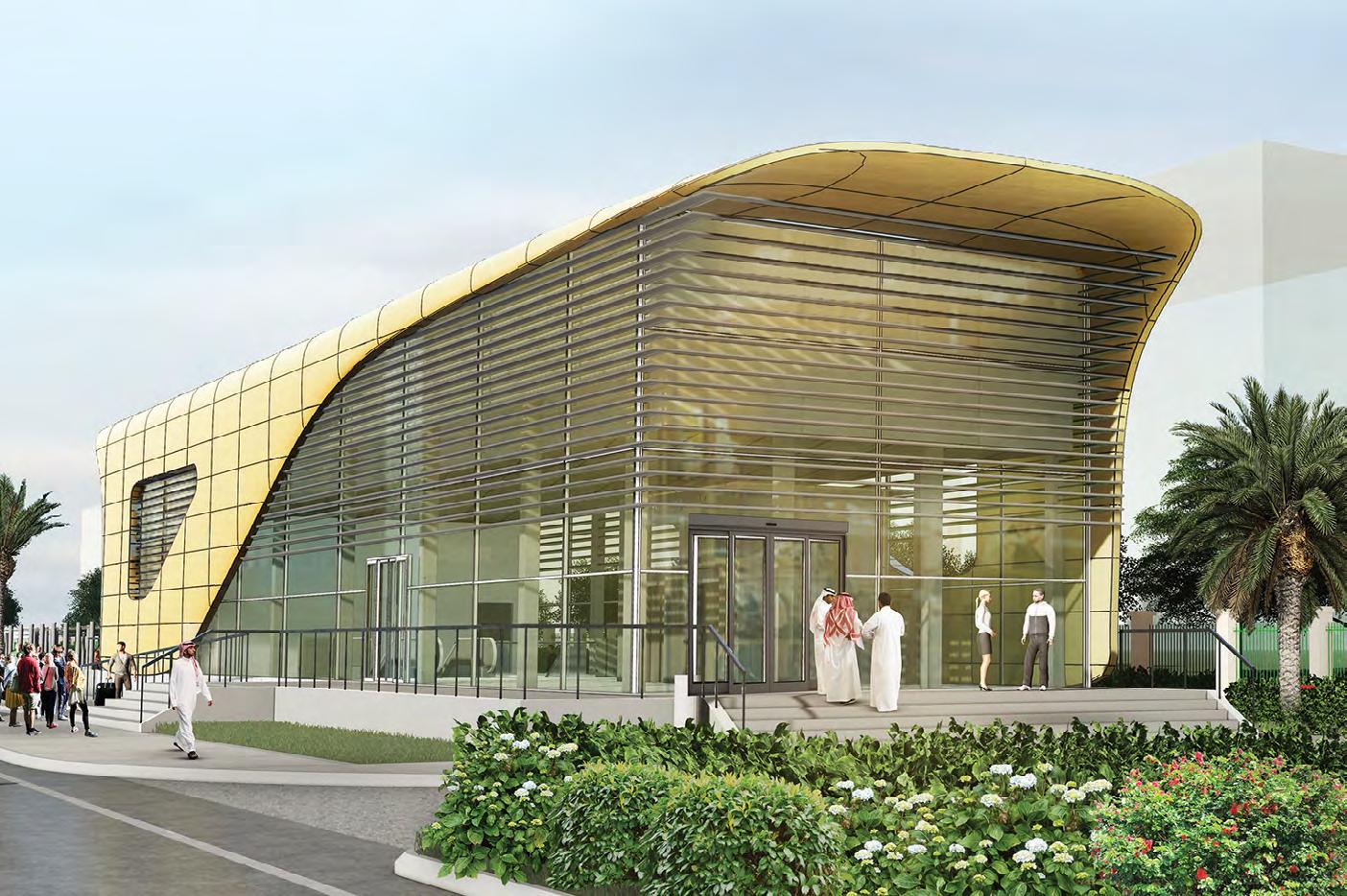
efficient, reliable & modern fleet
This is a first-of-its-kind Cargo SUV model which is now available across Al Masaood Automobile , Renault showrooms in Abu Dhabi & Al Ain.
